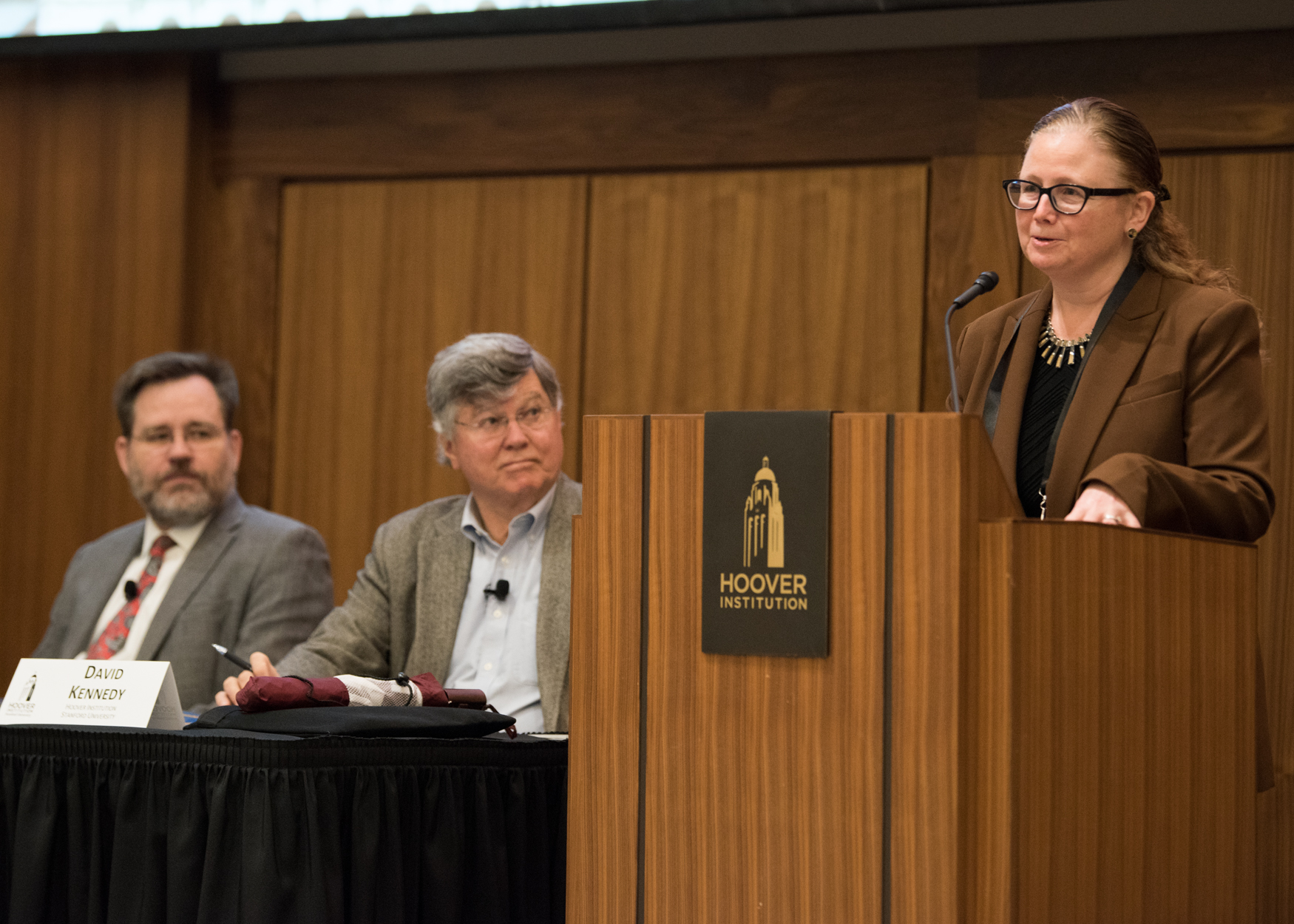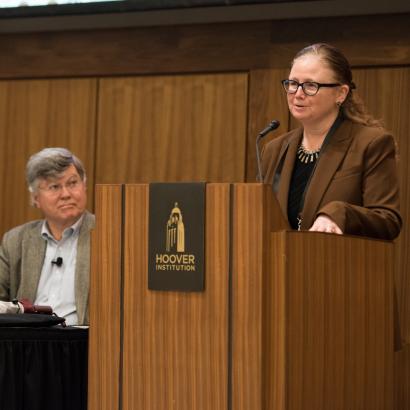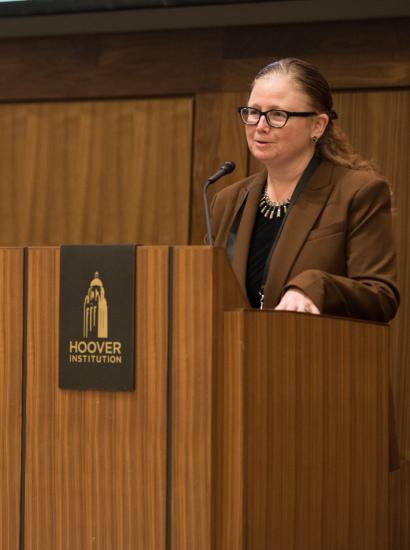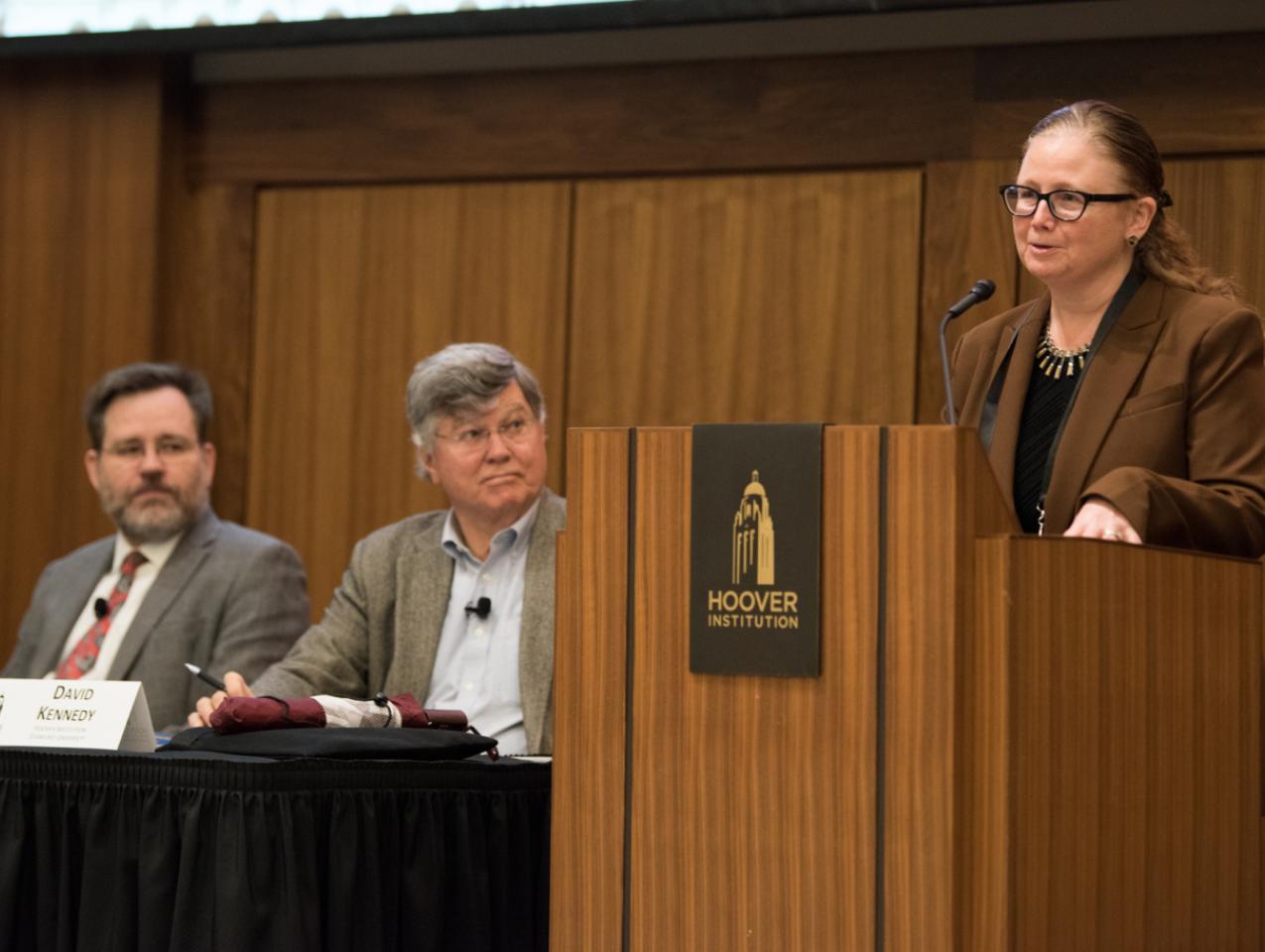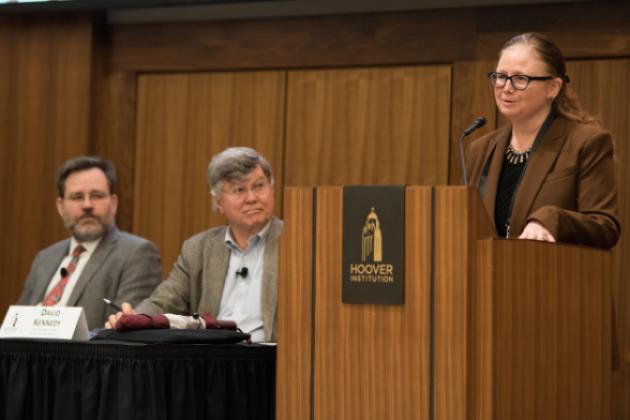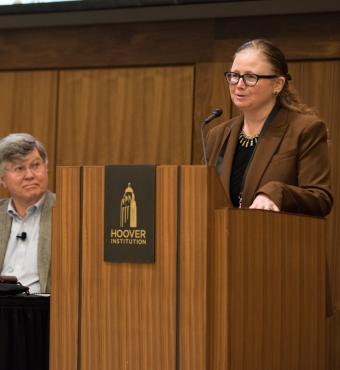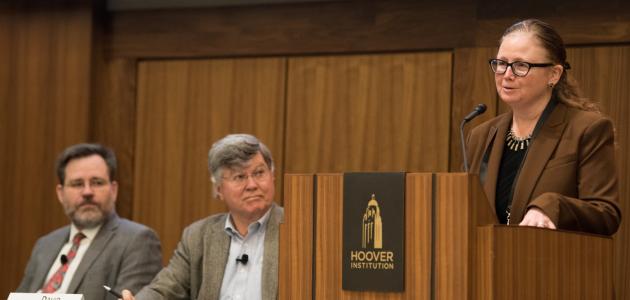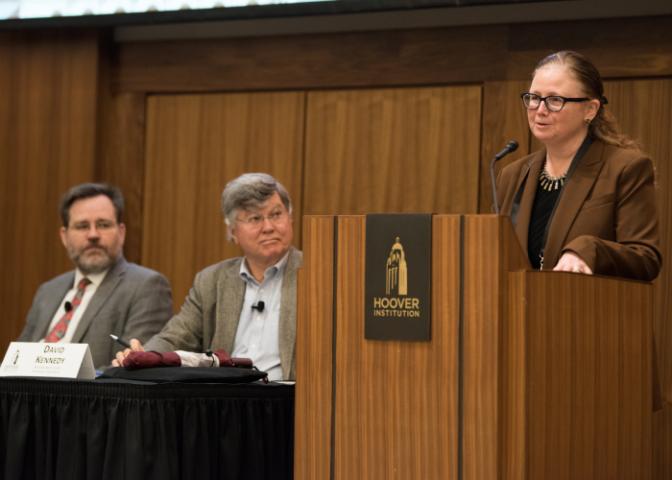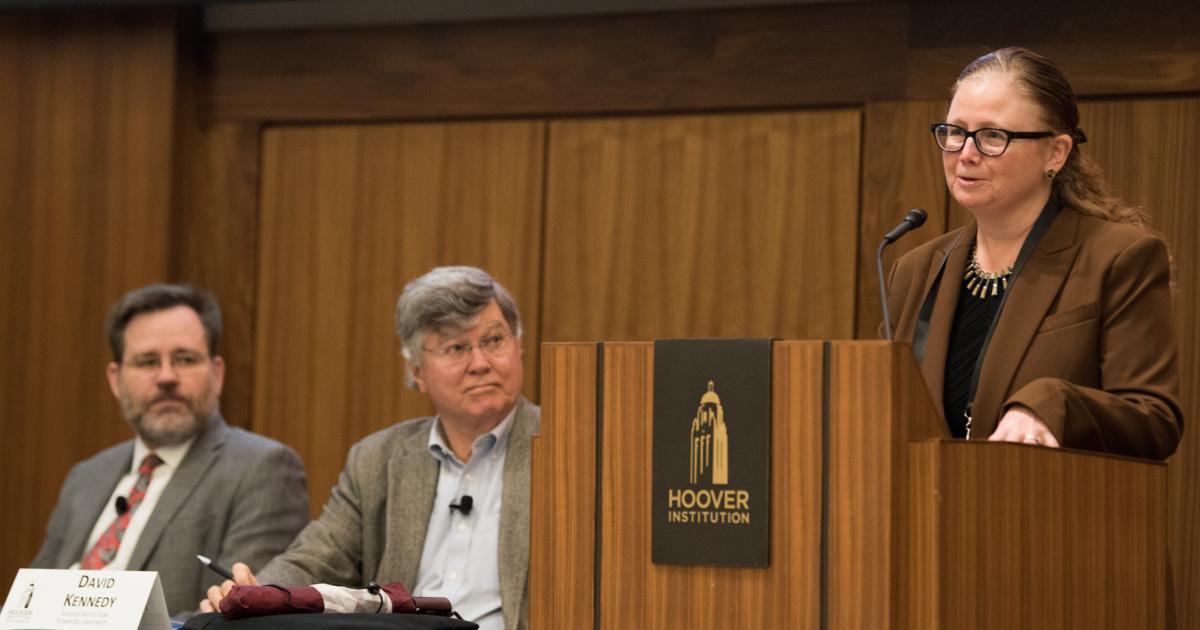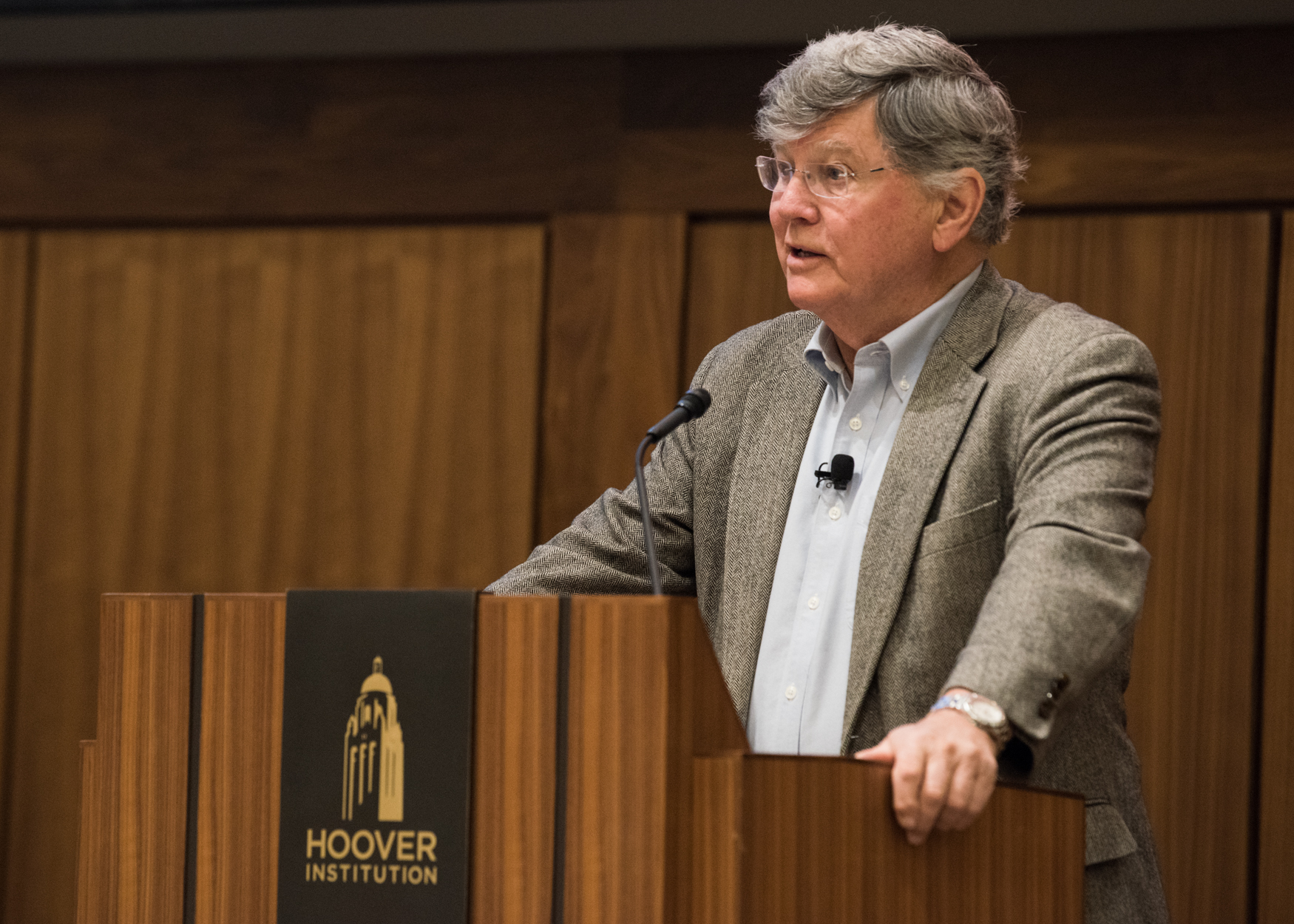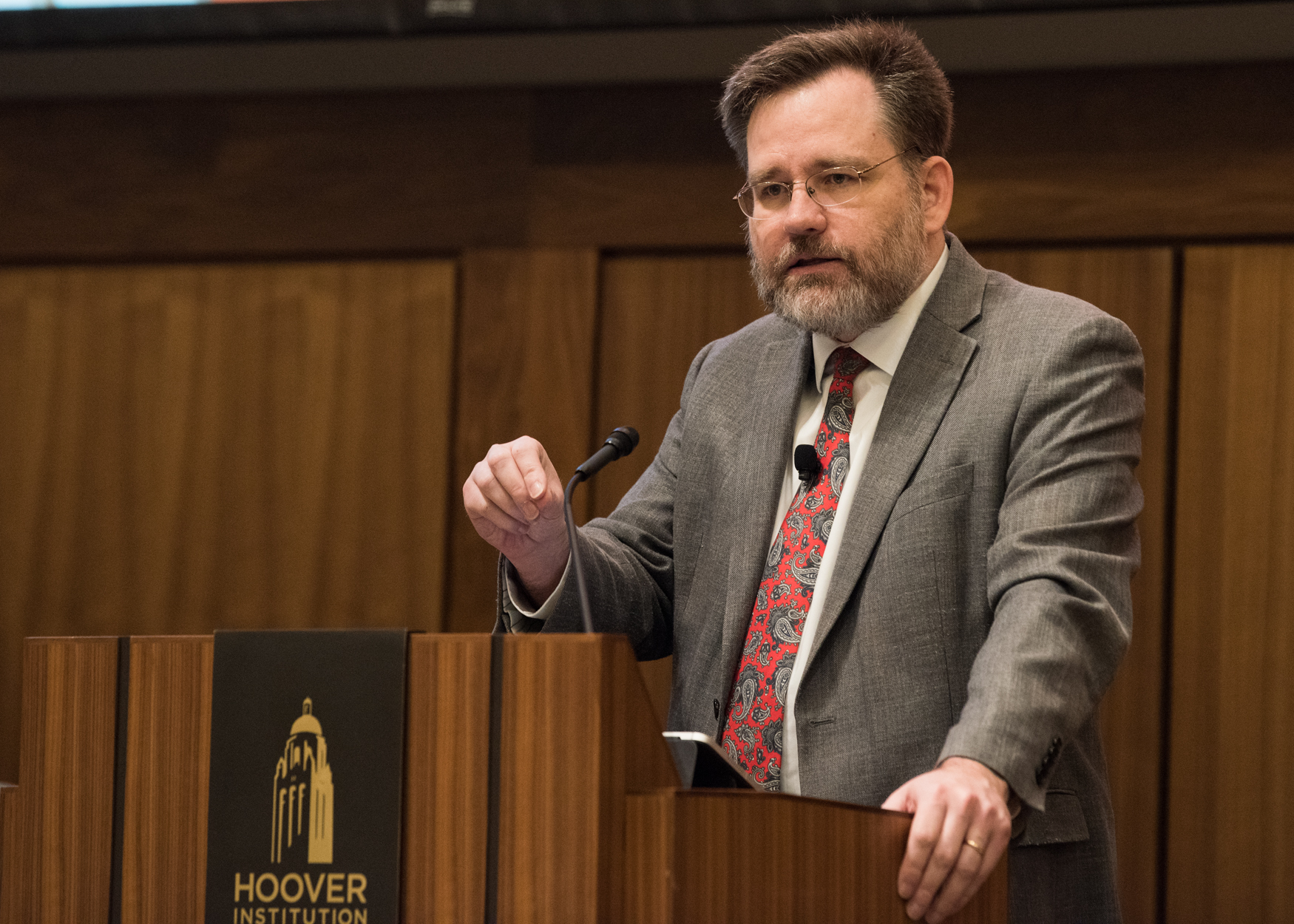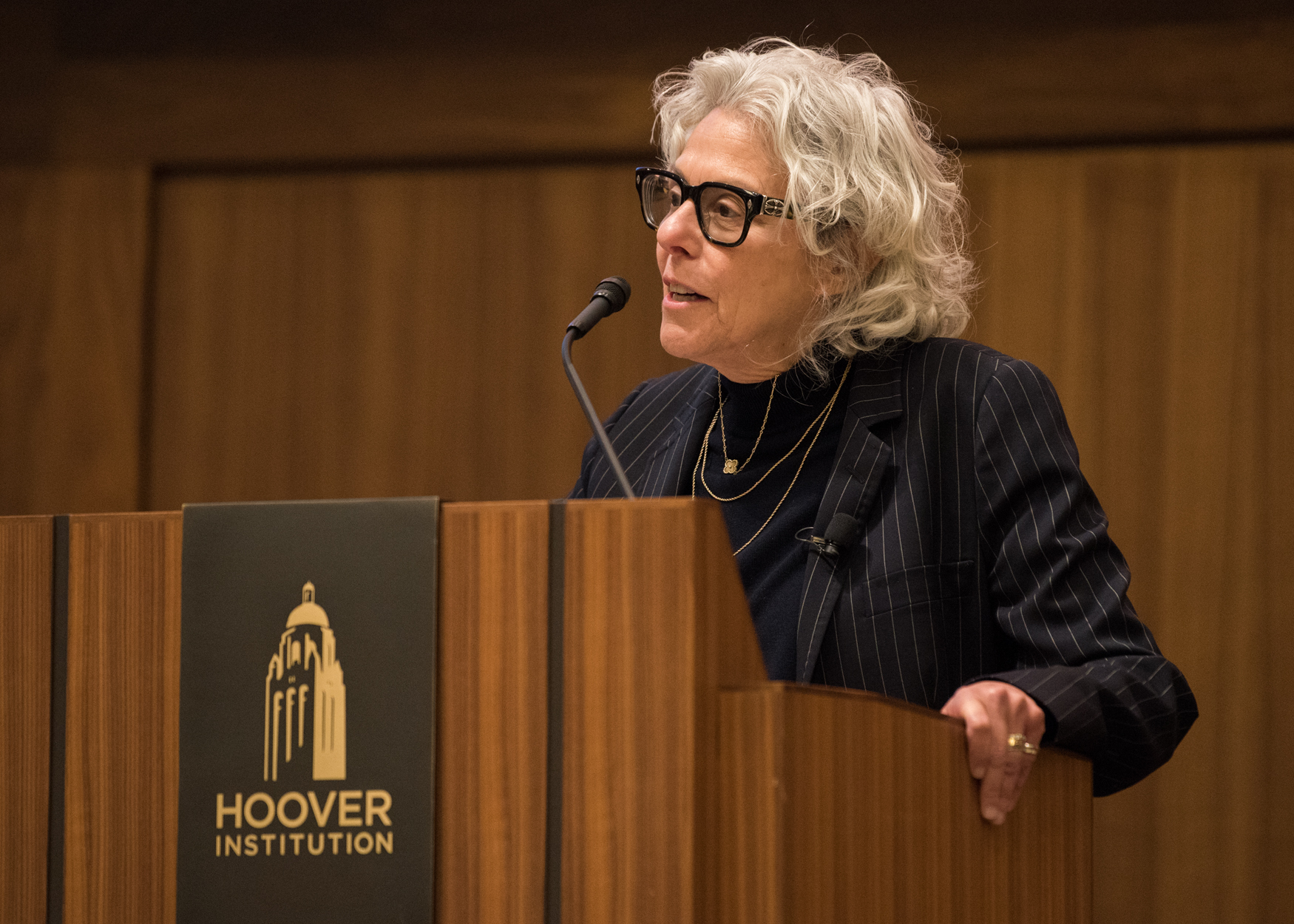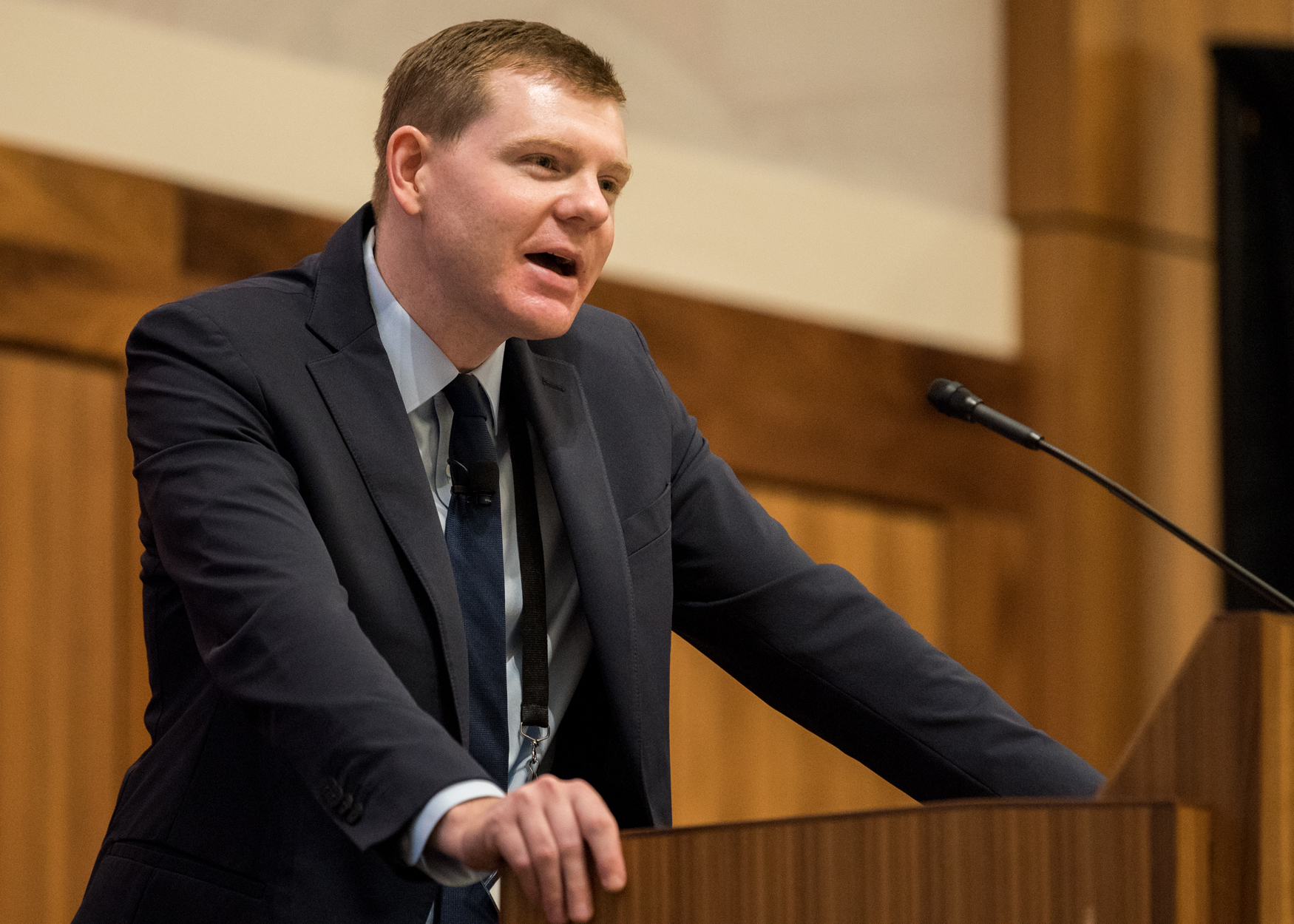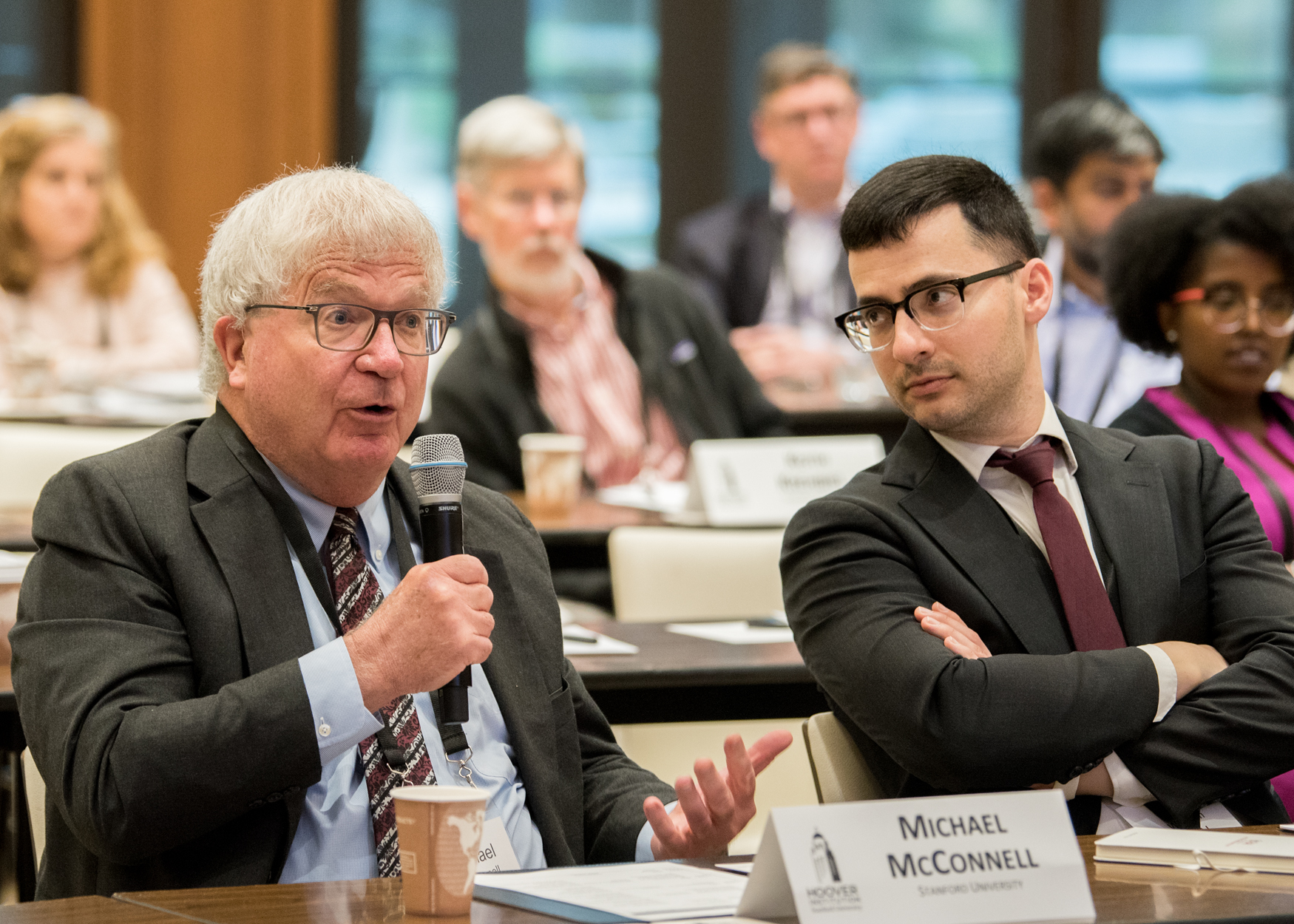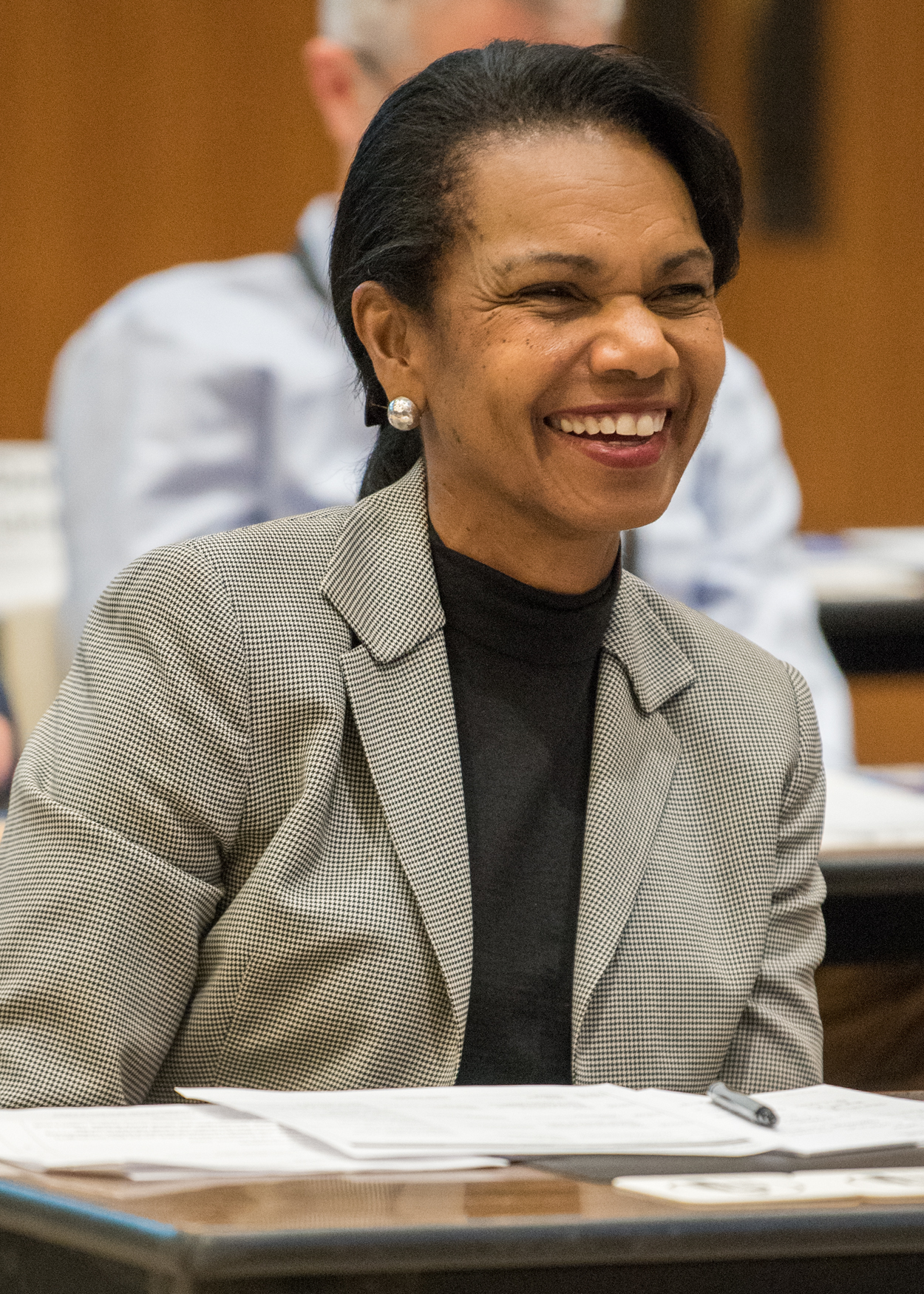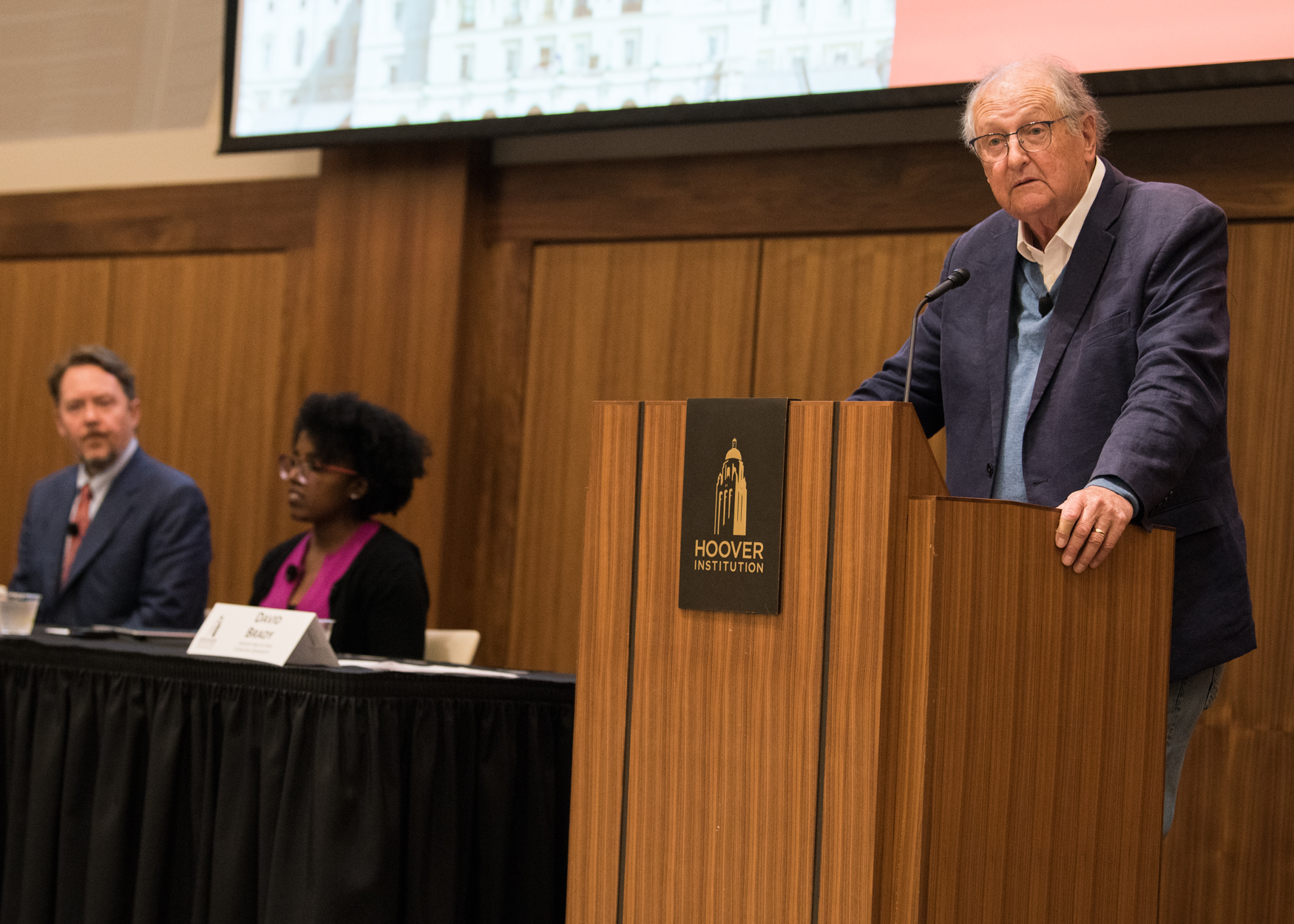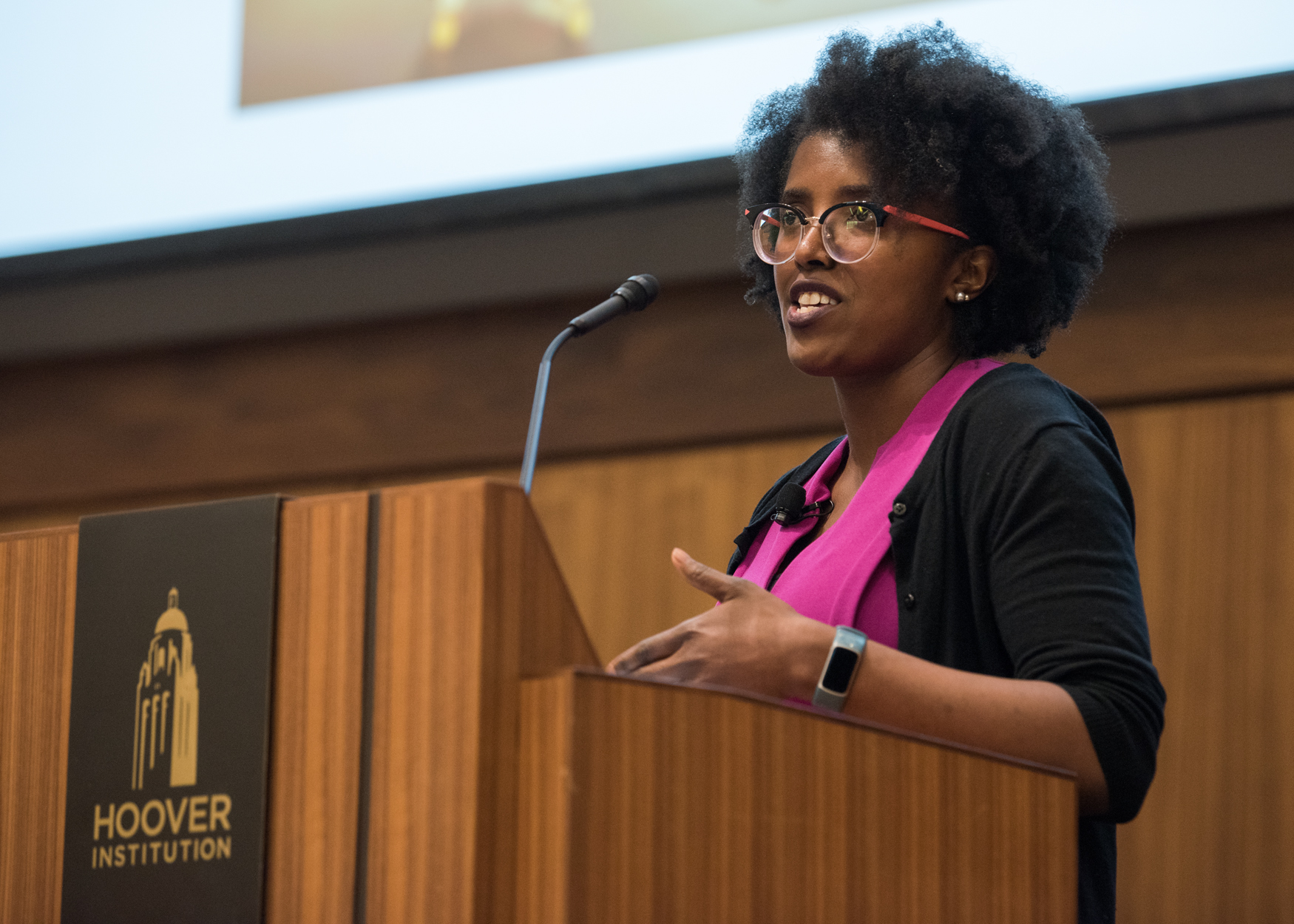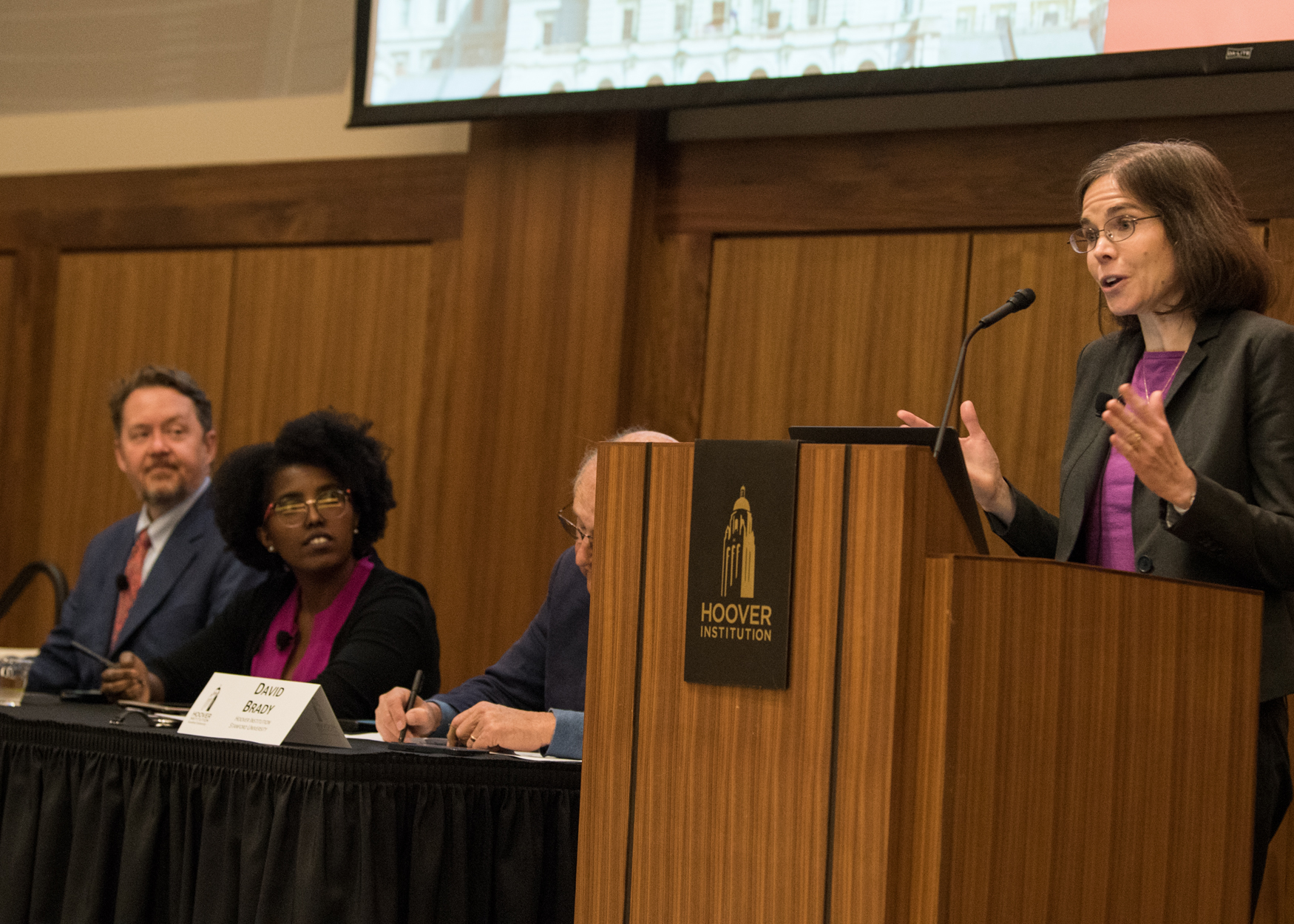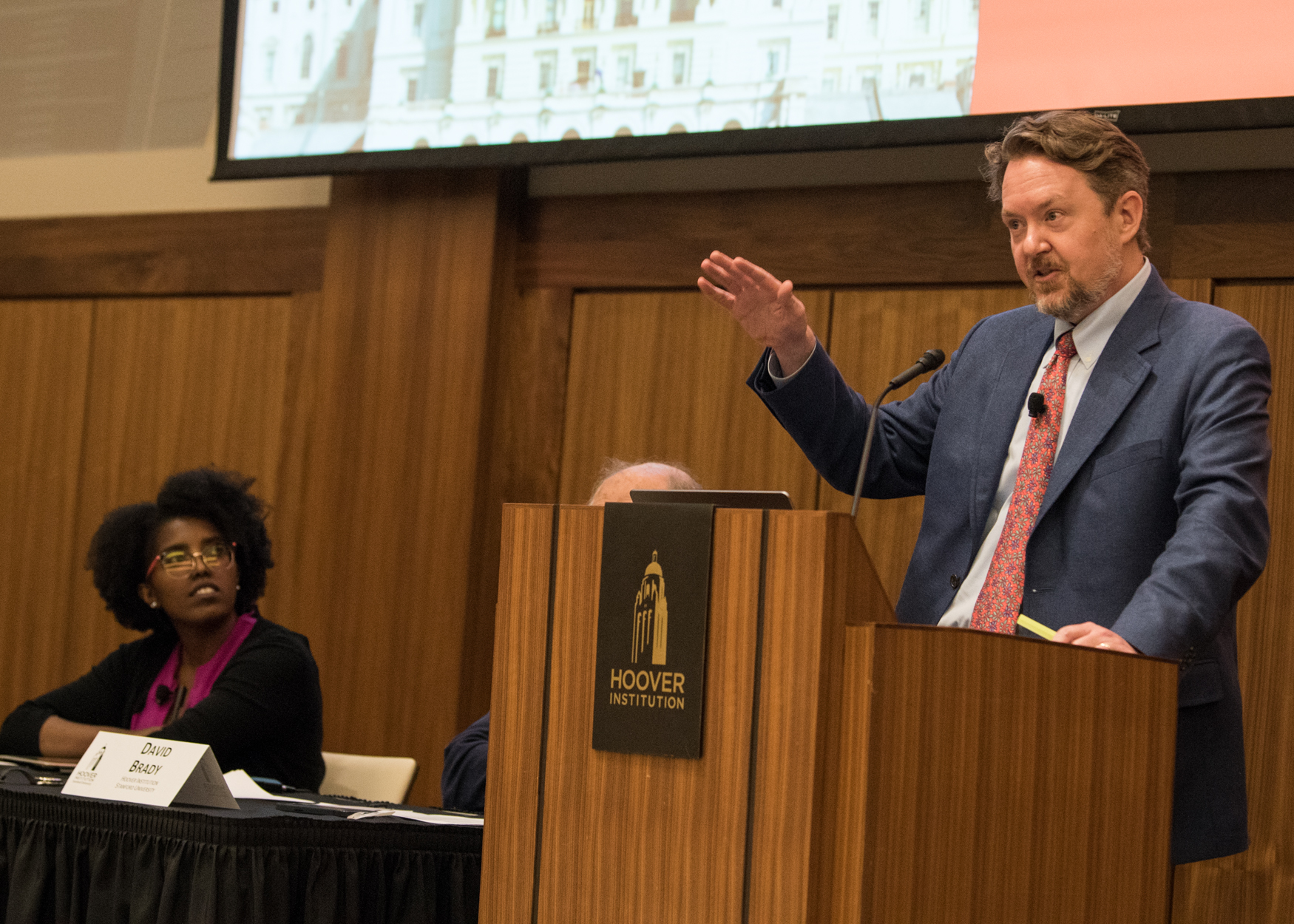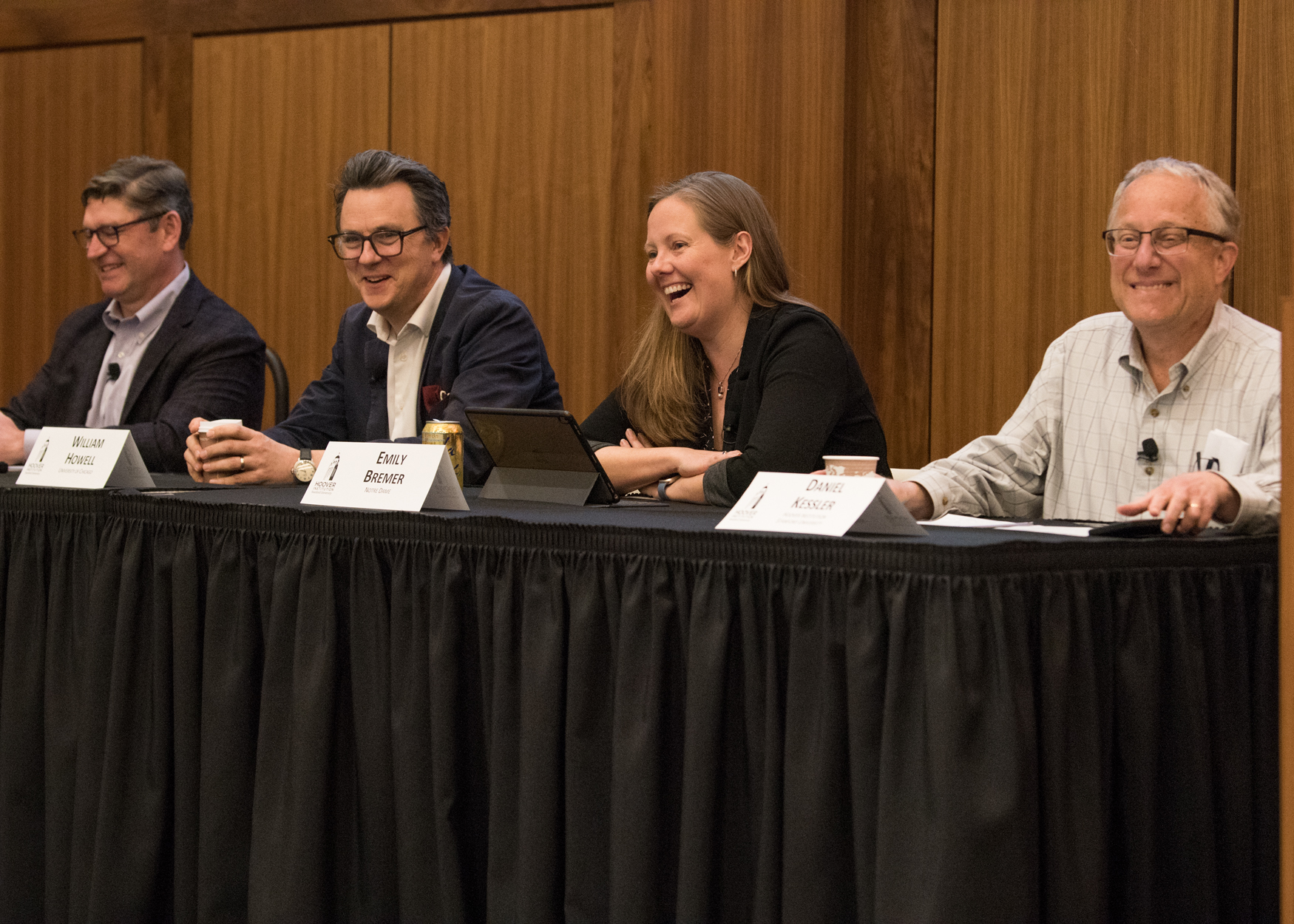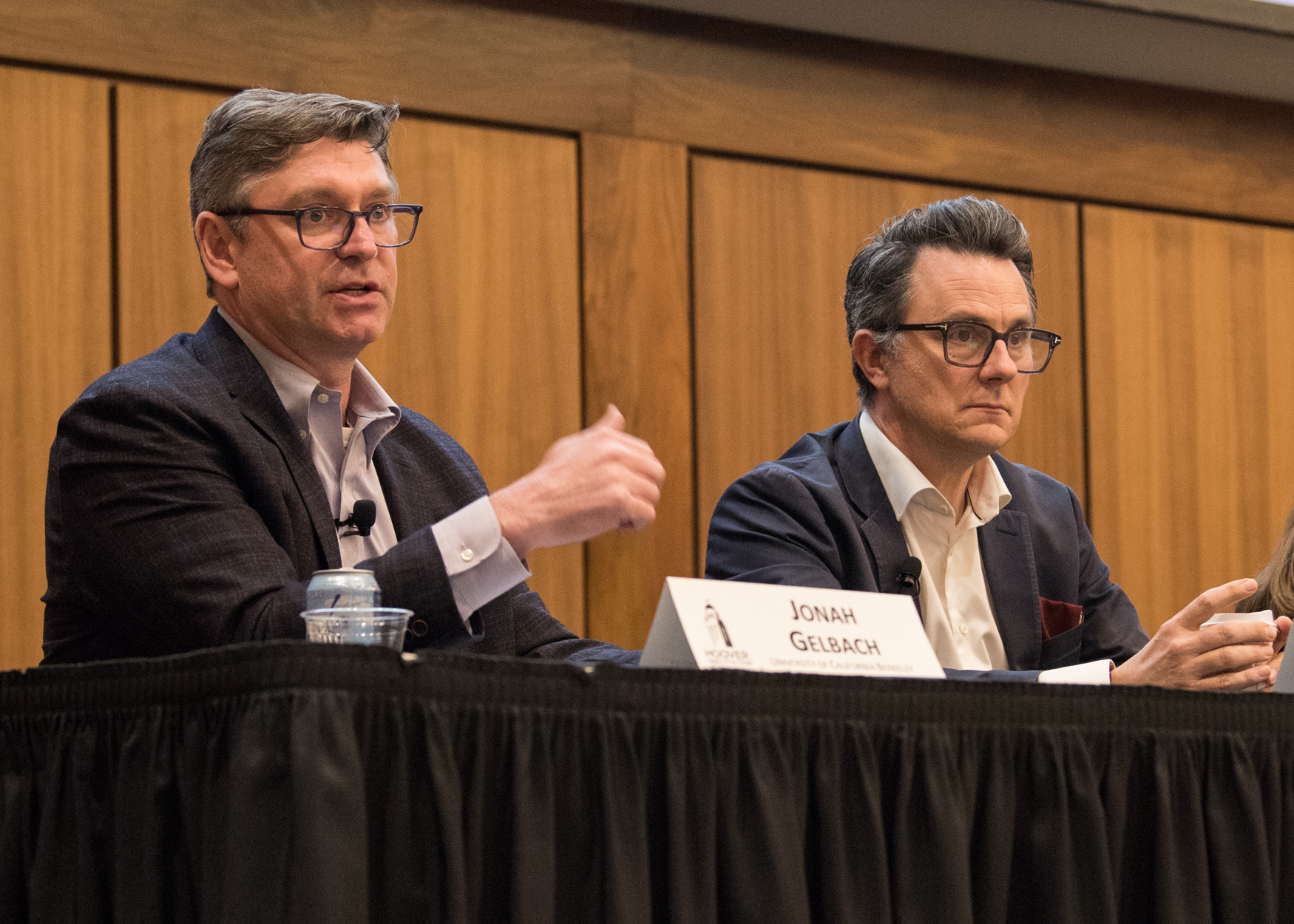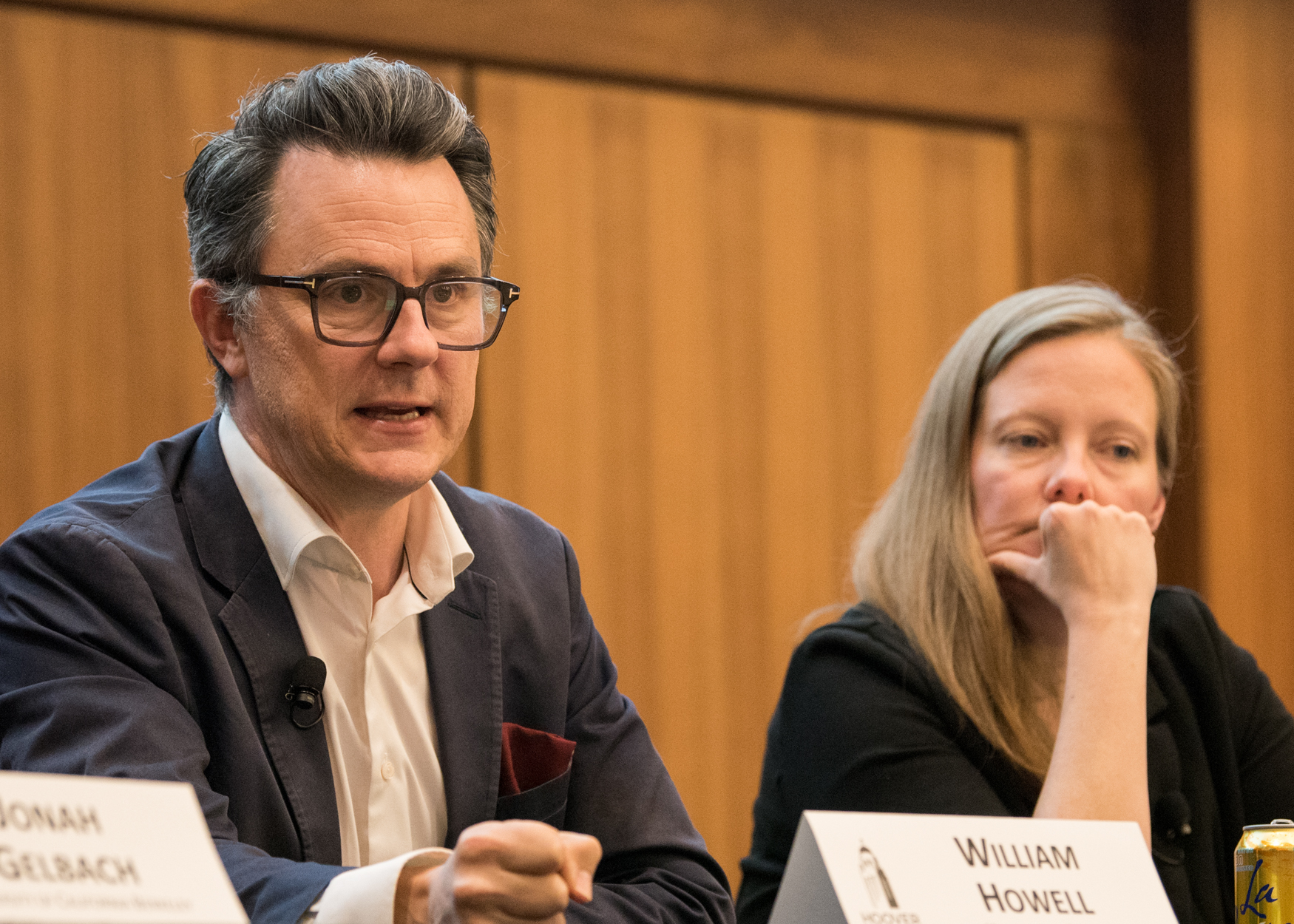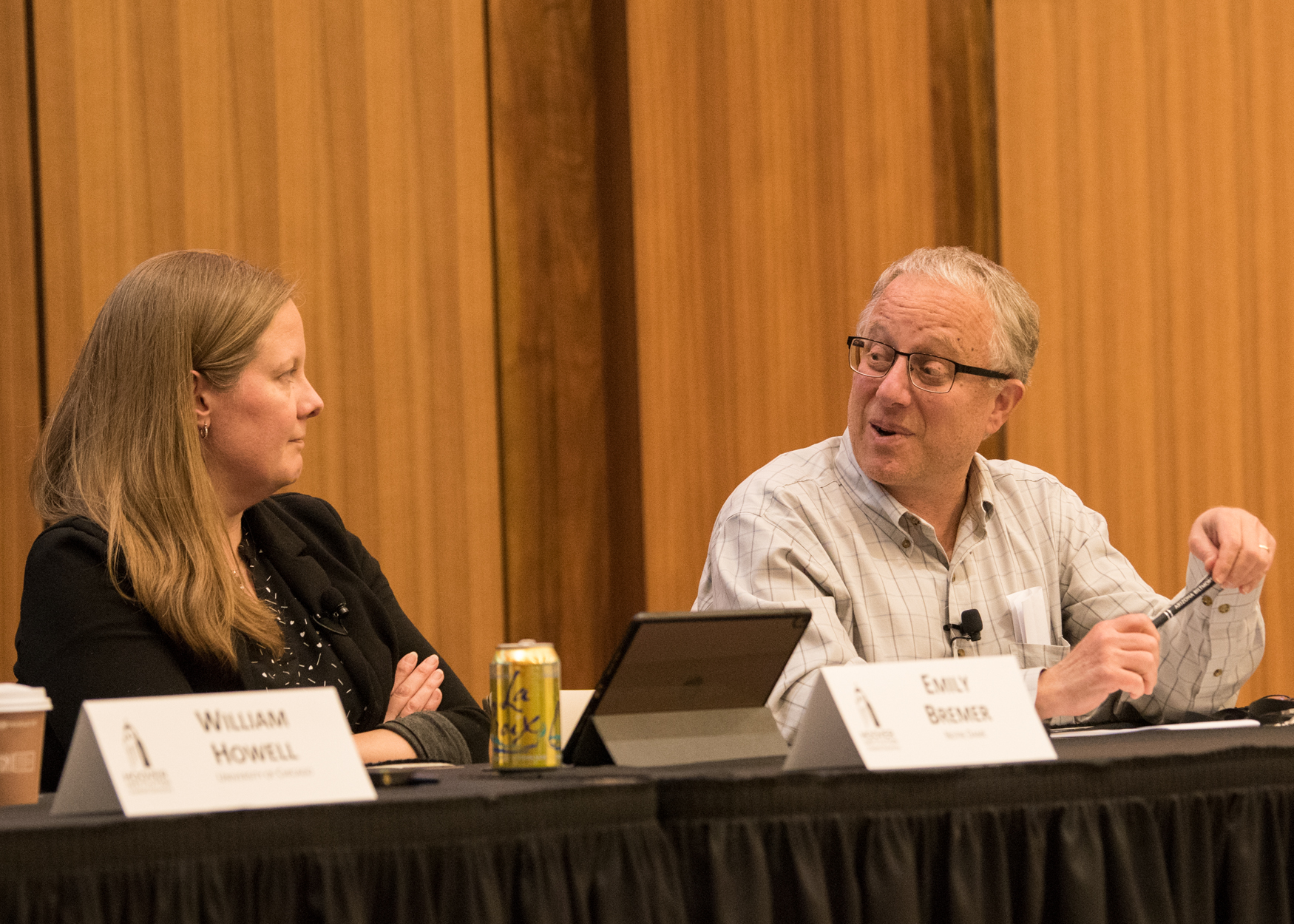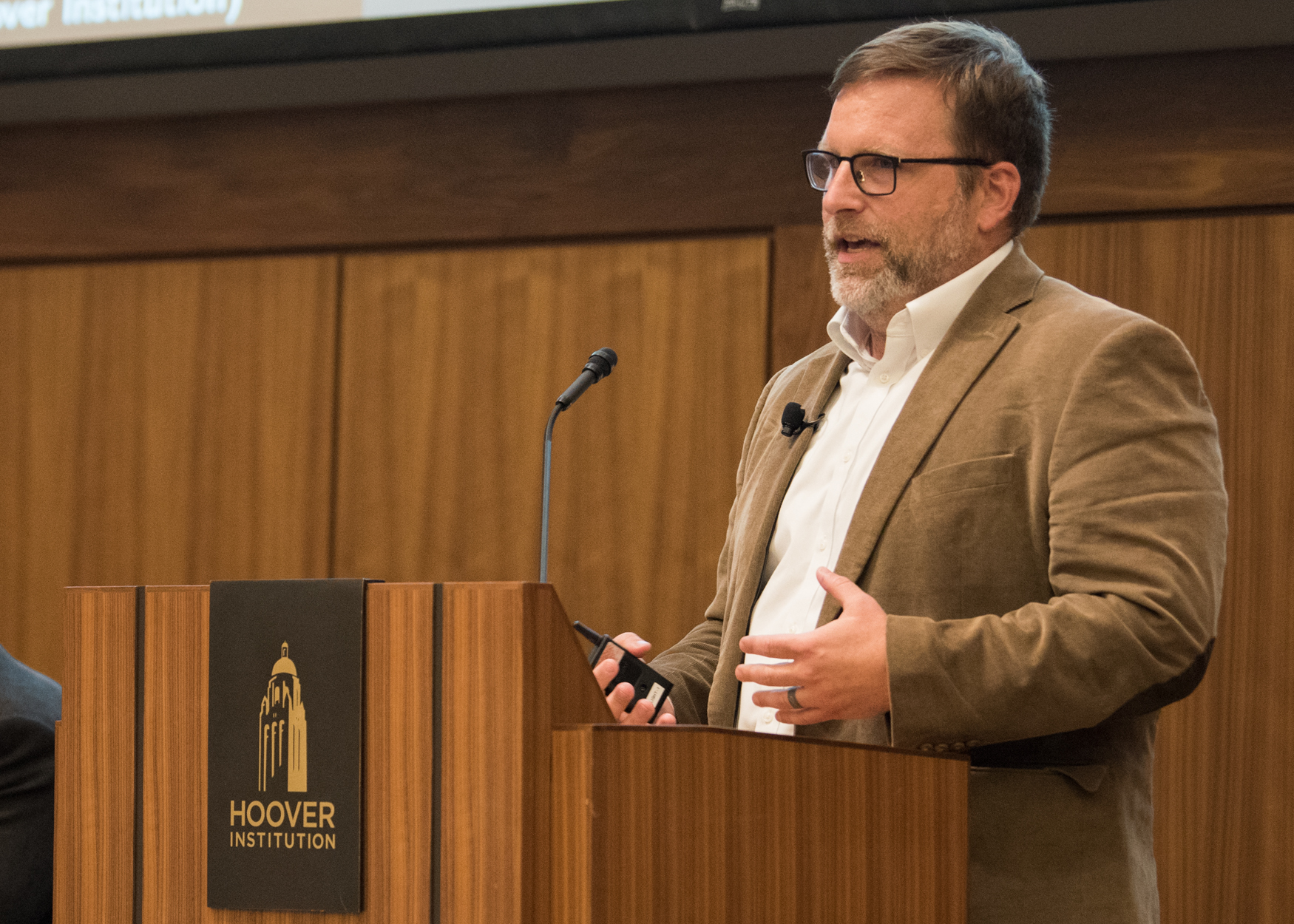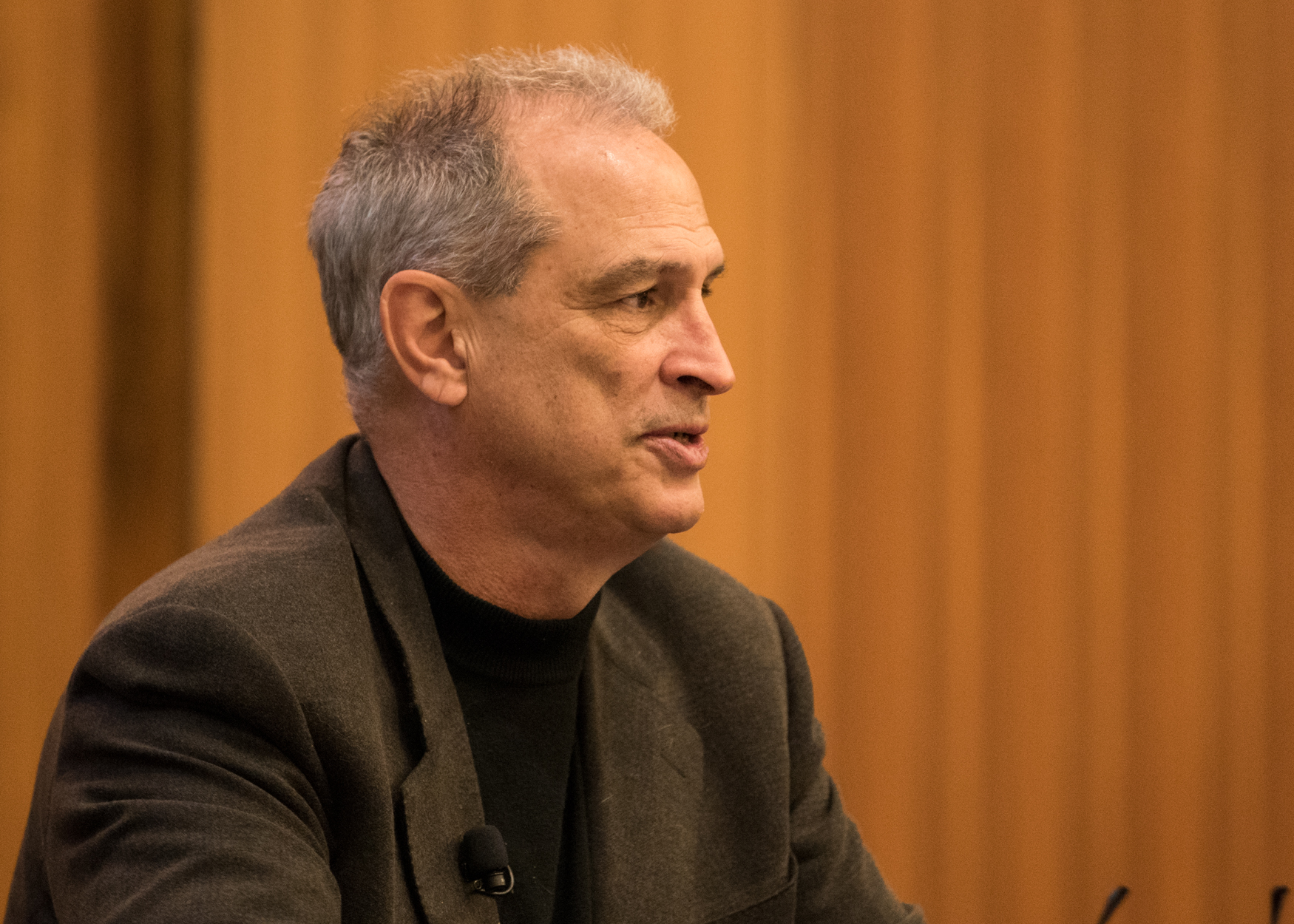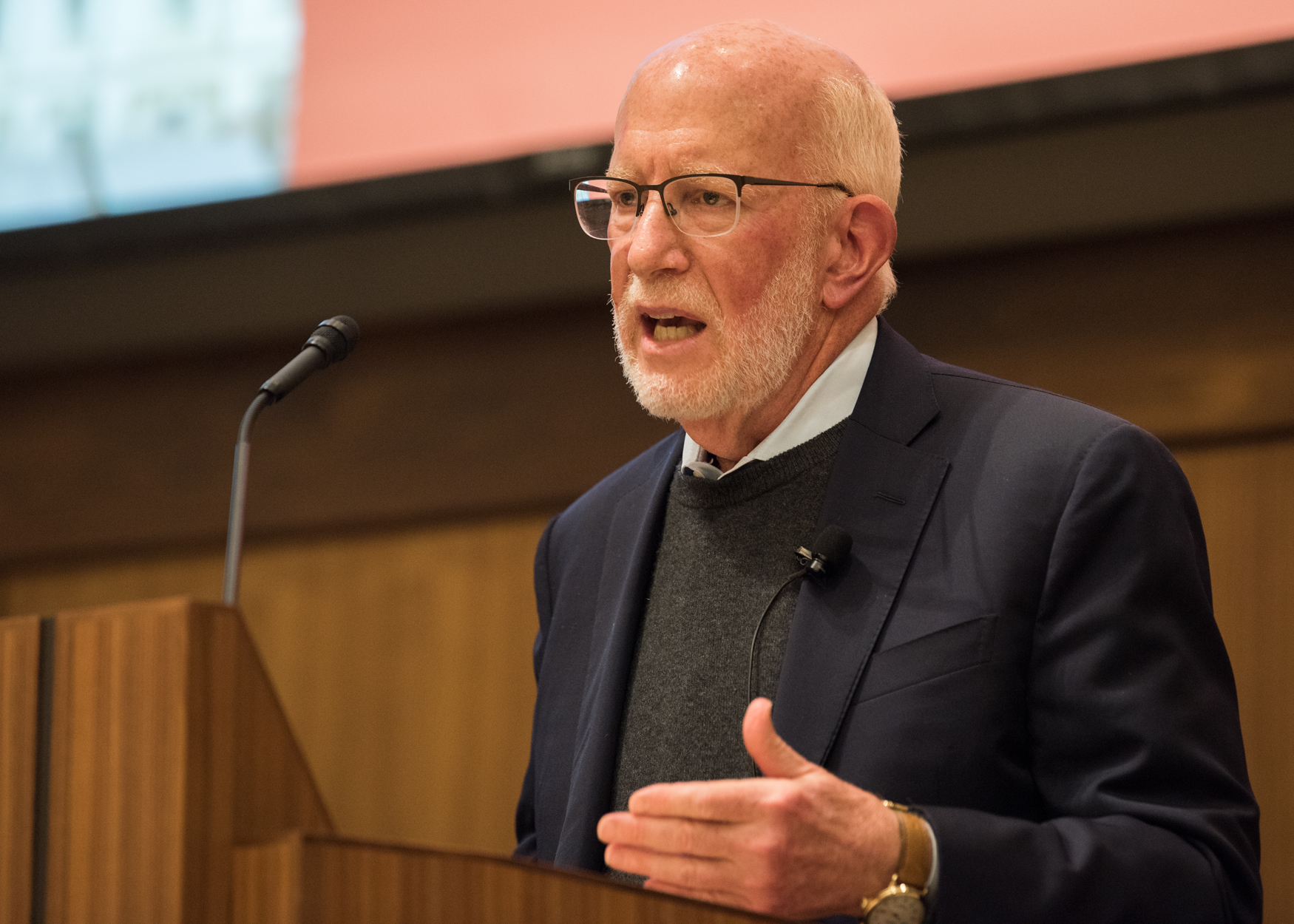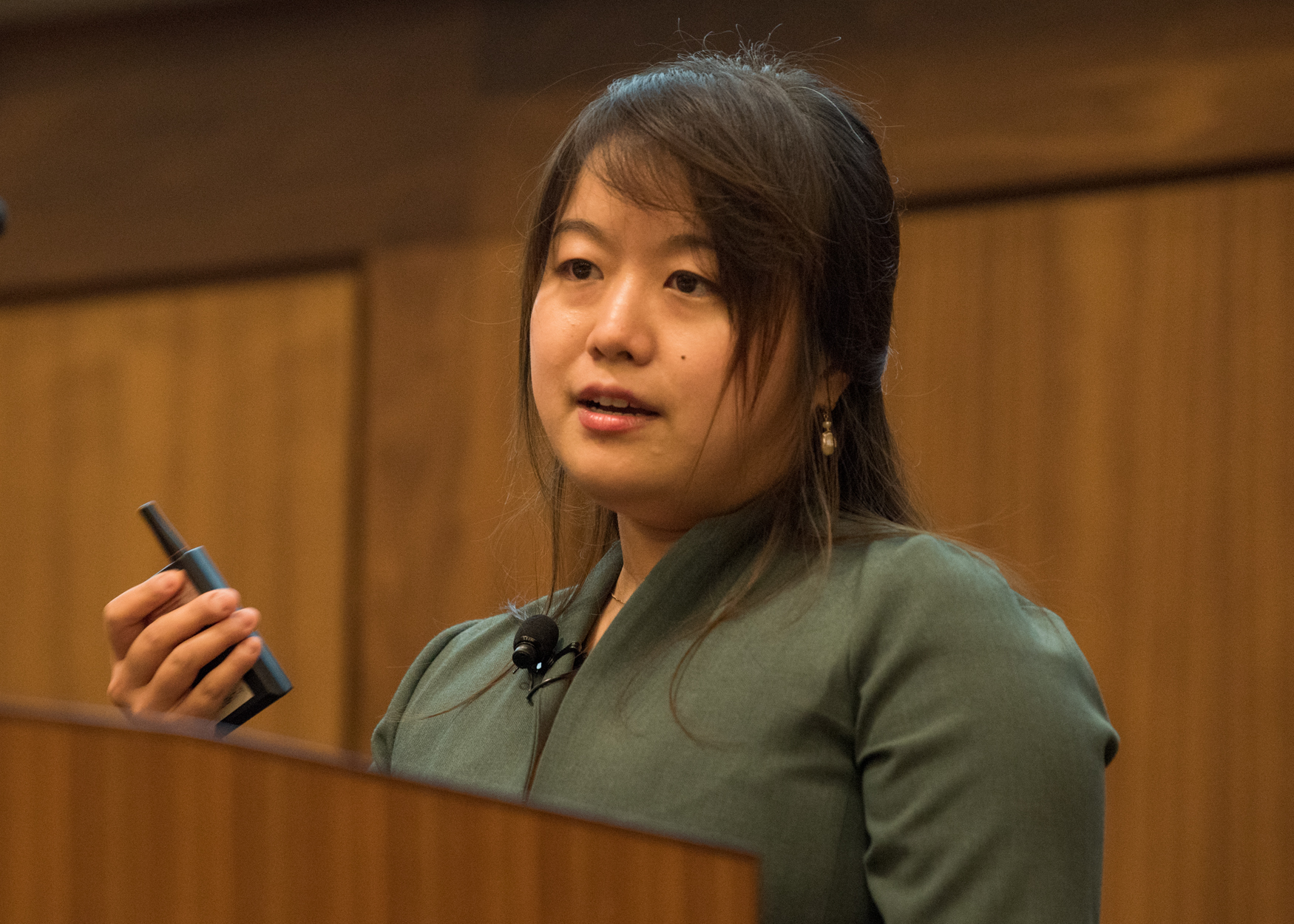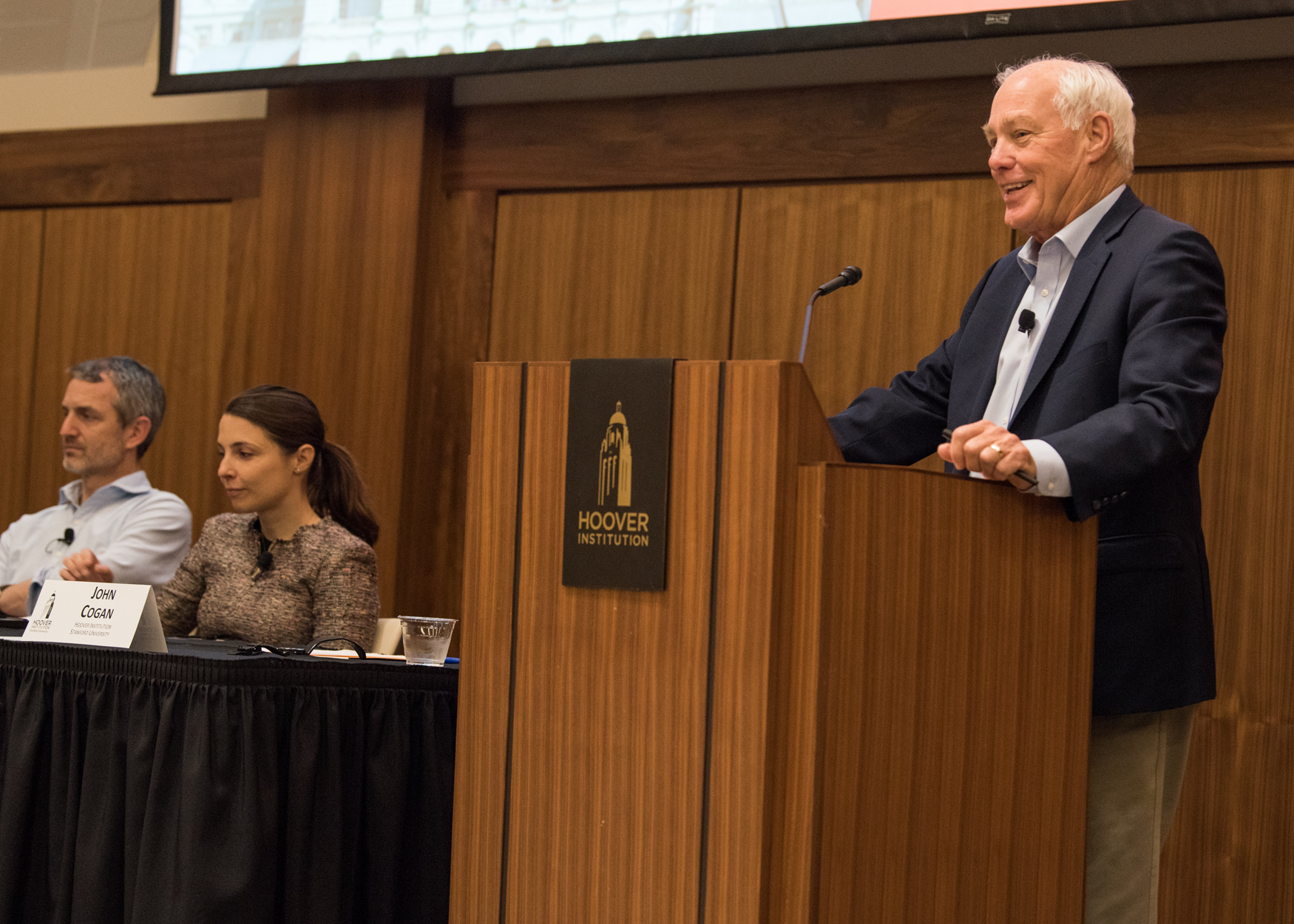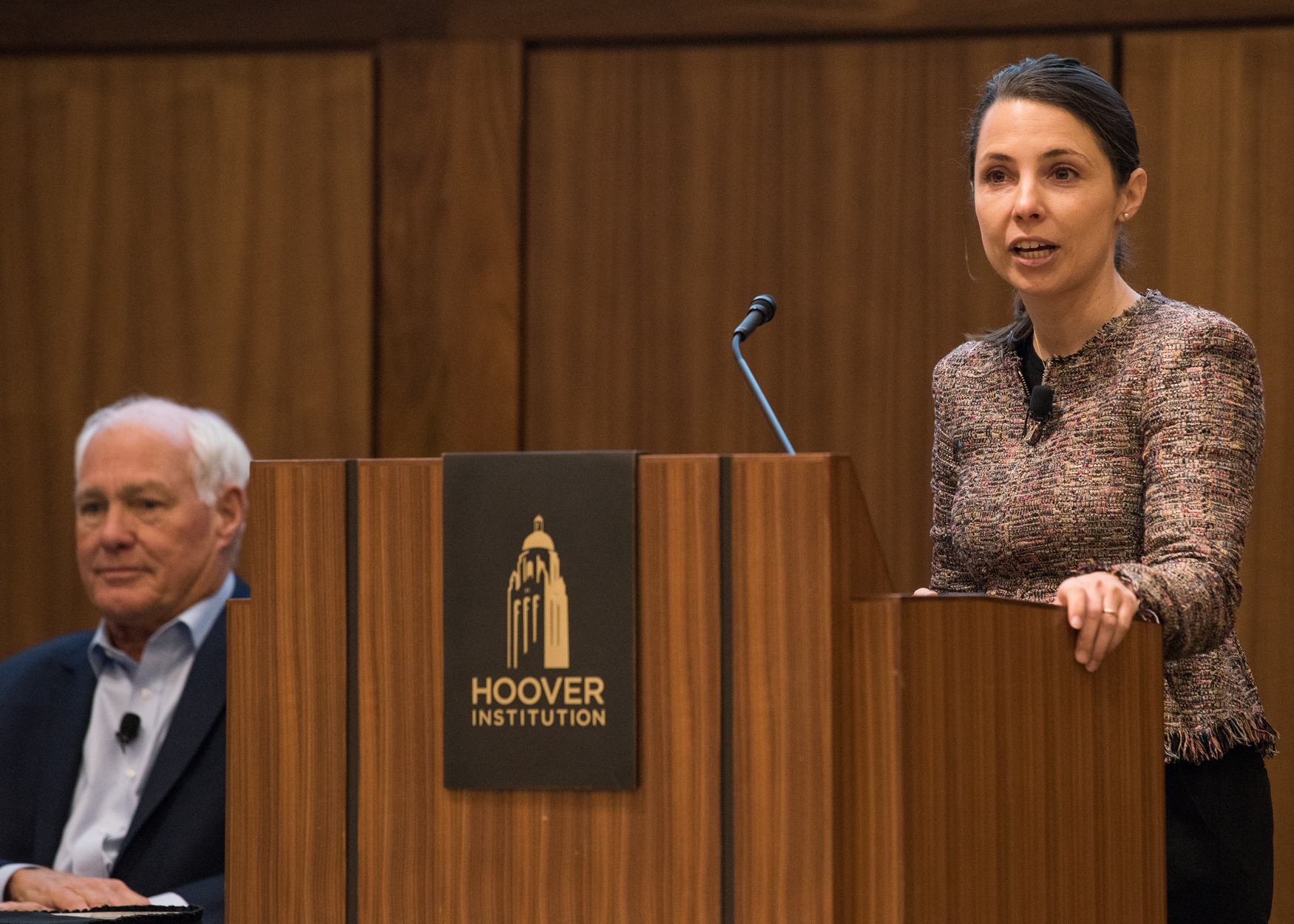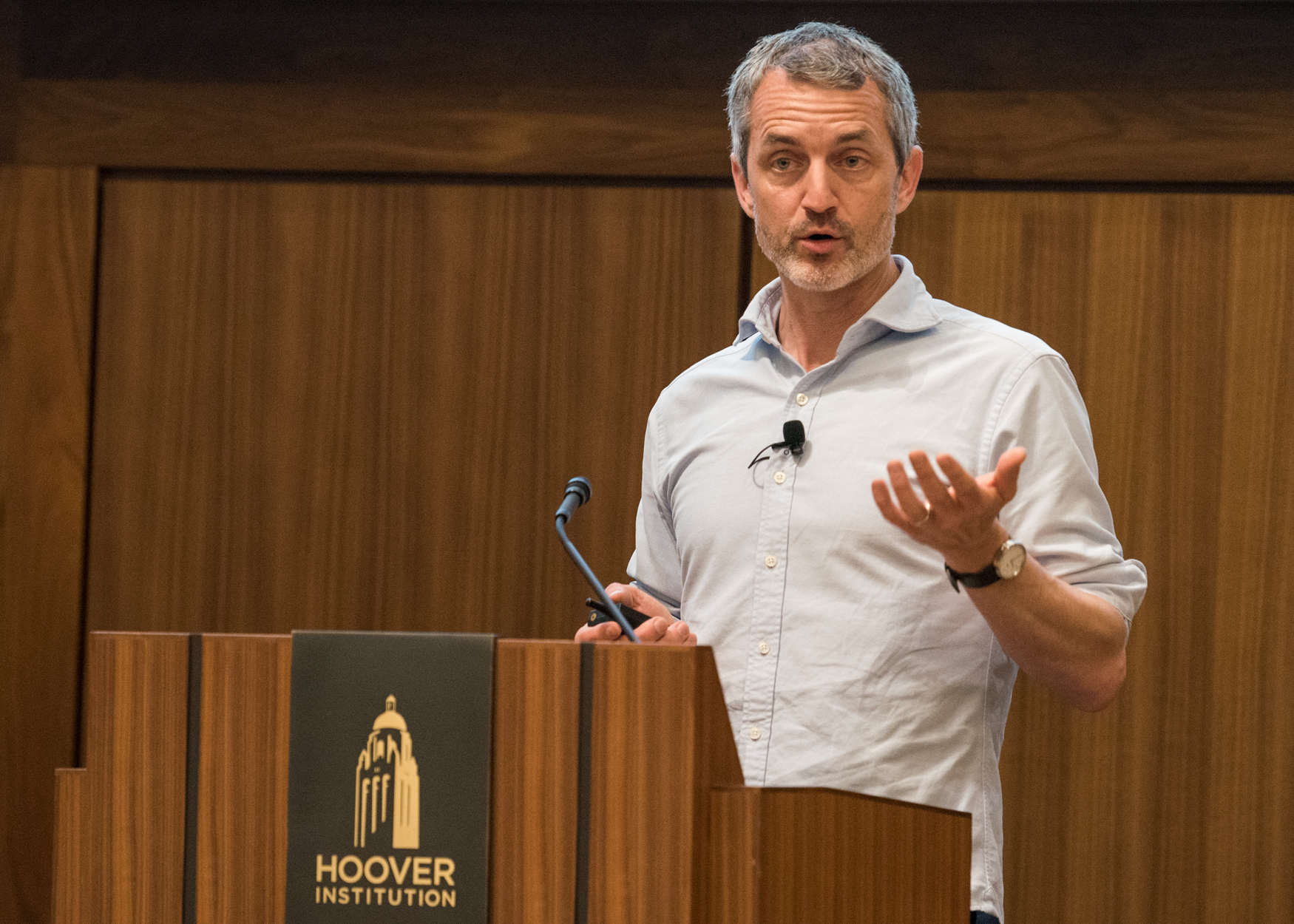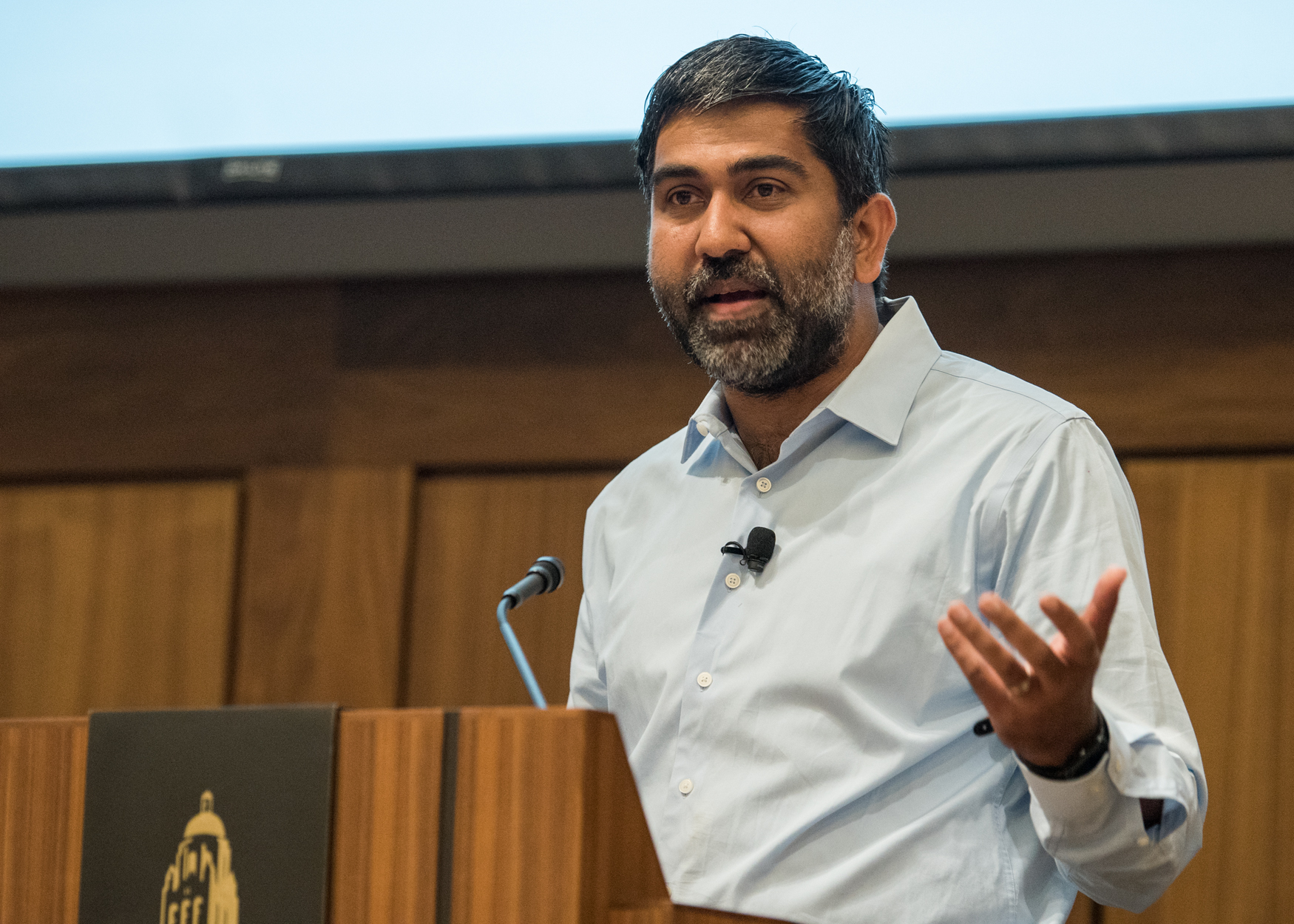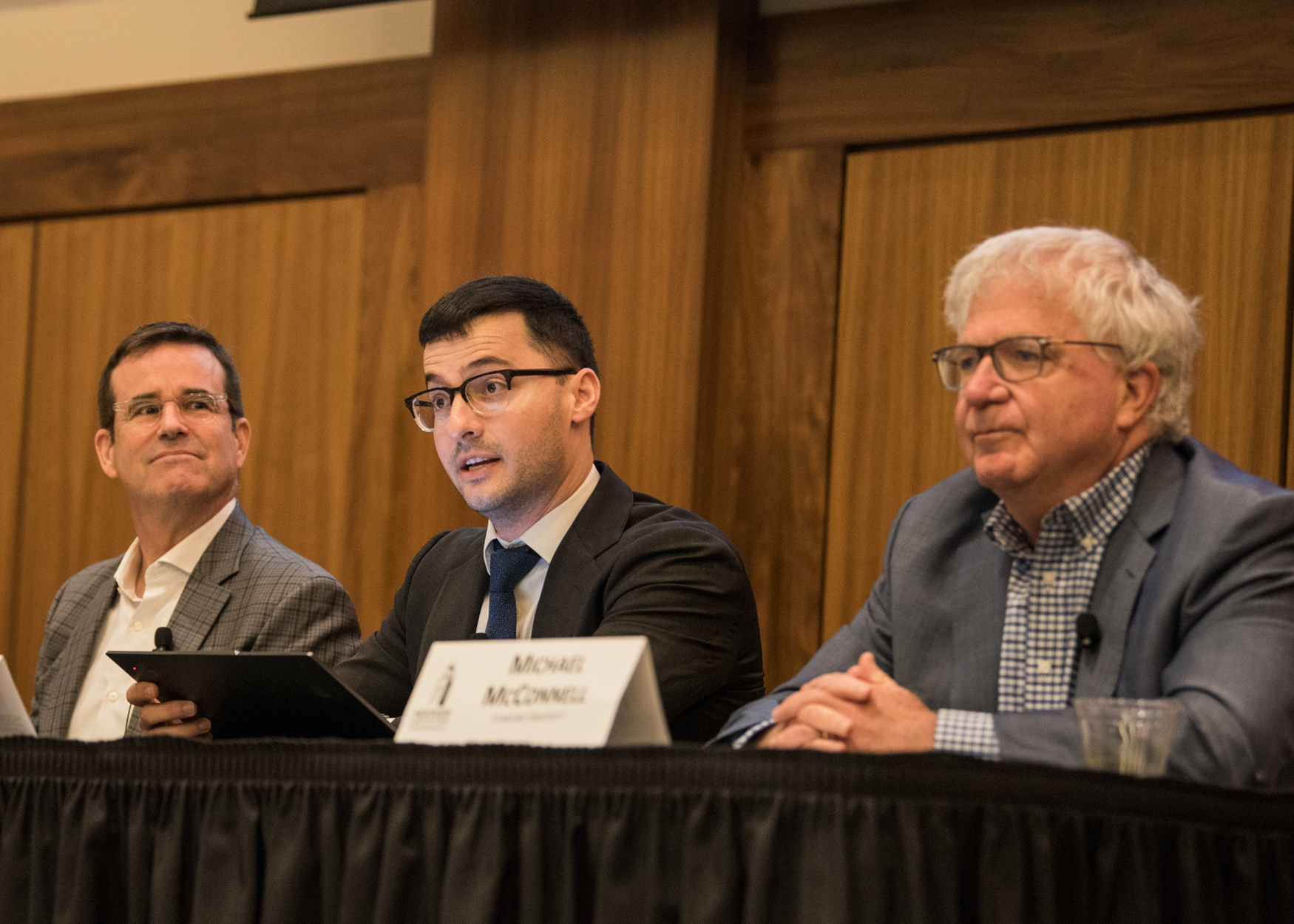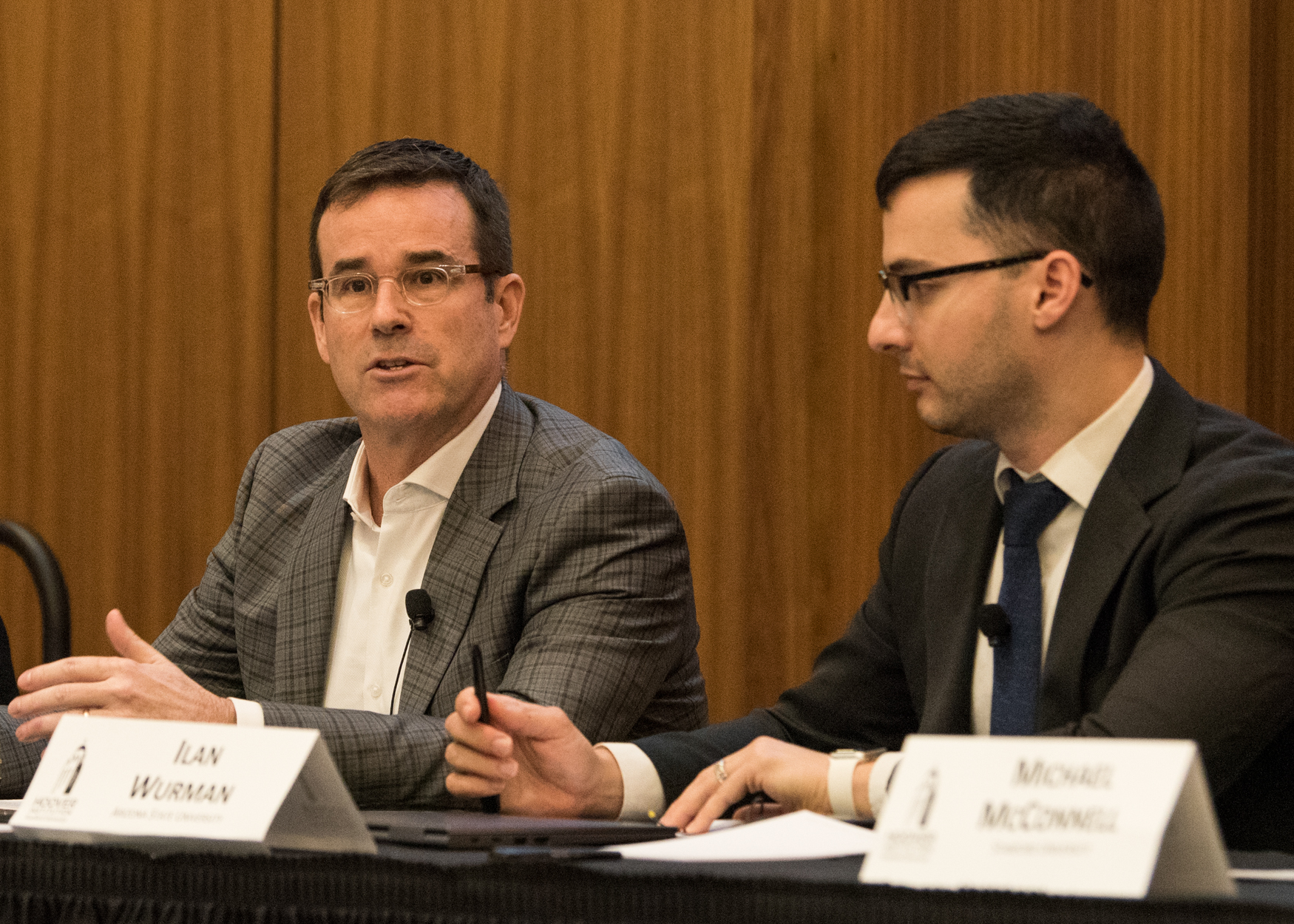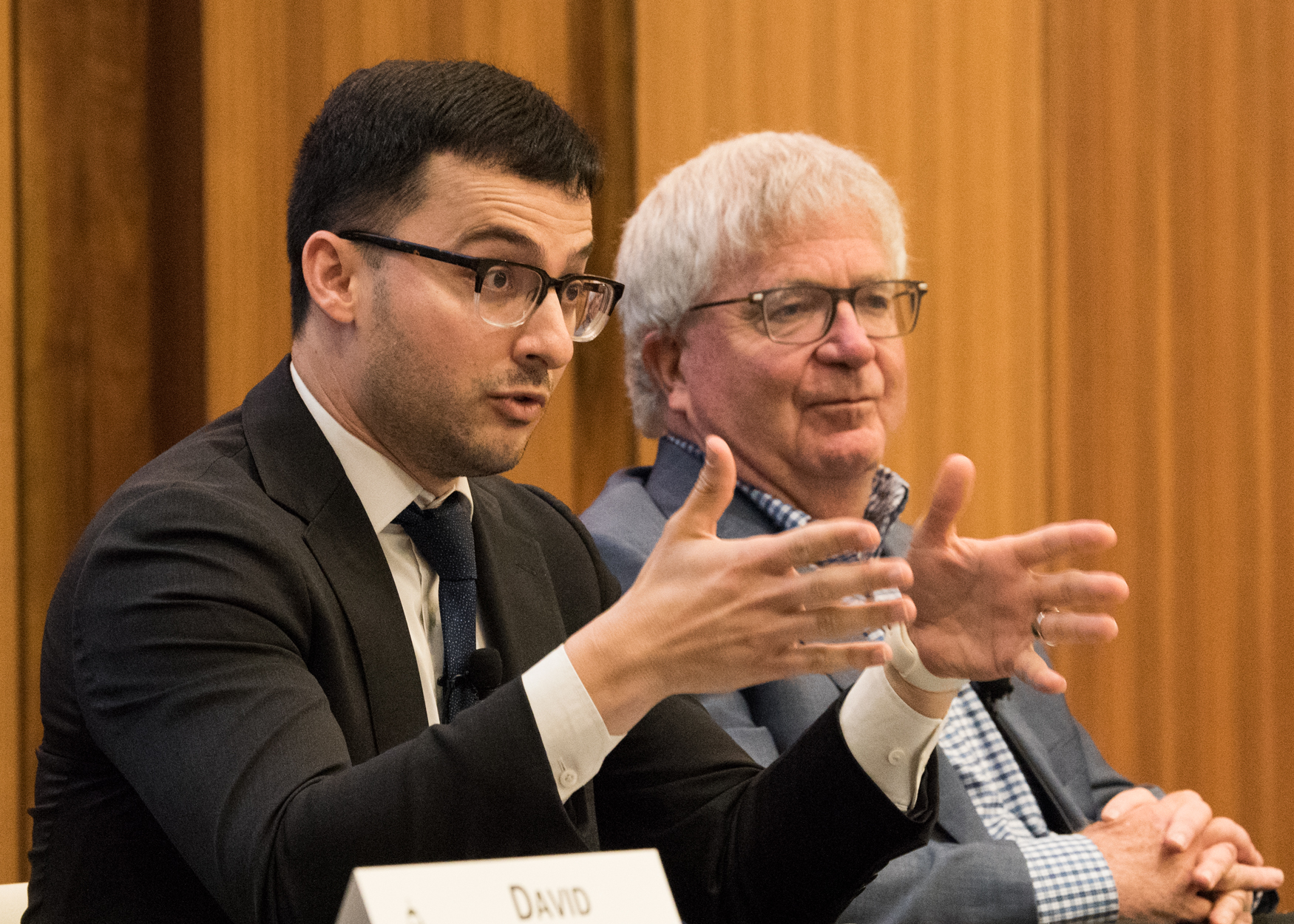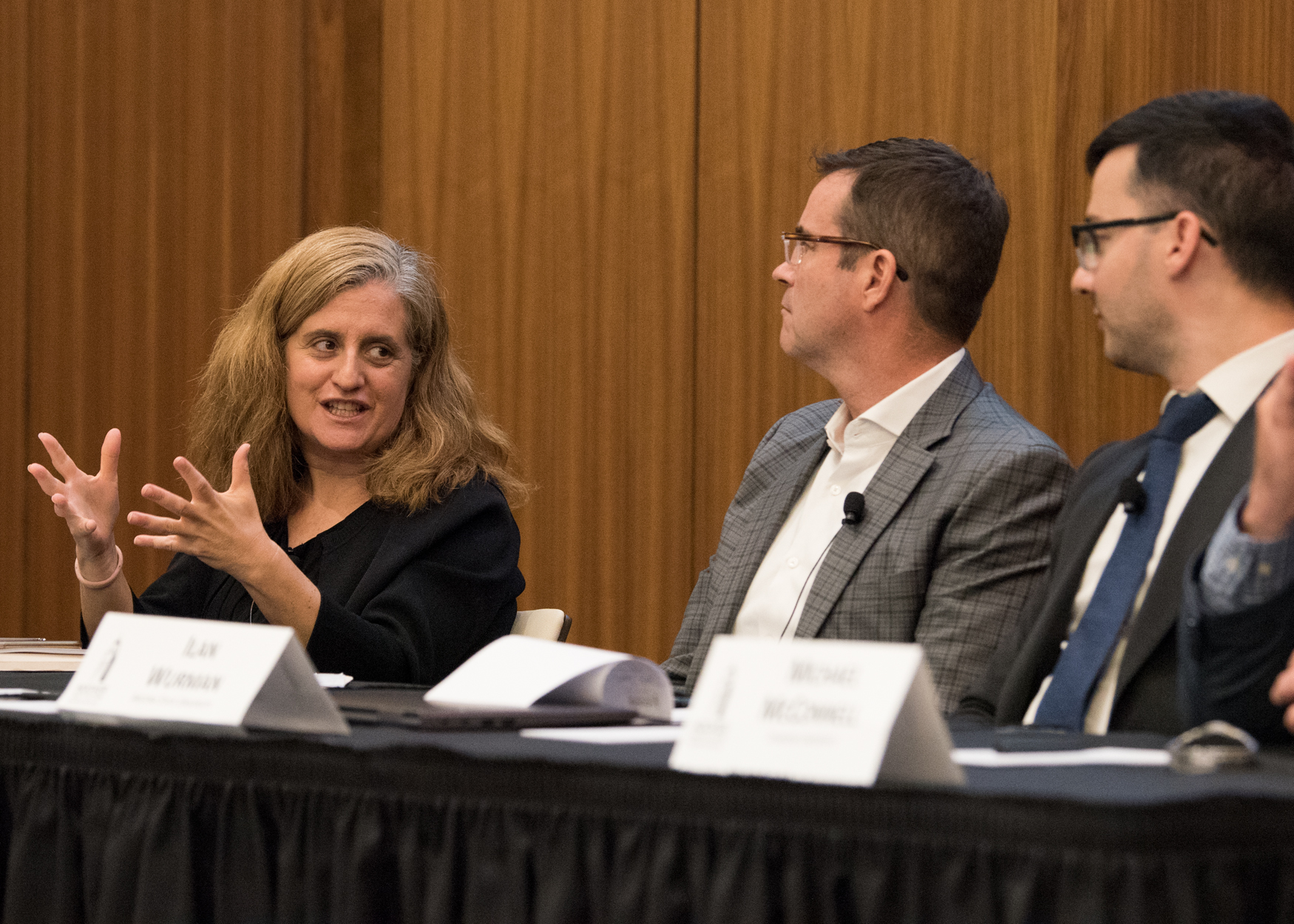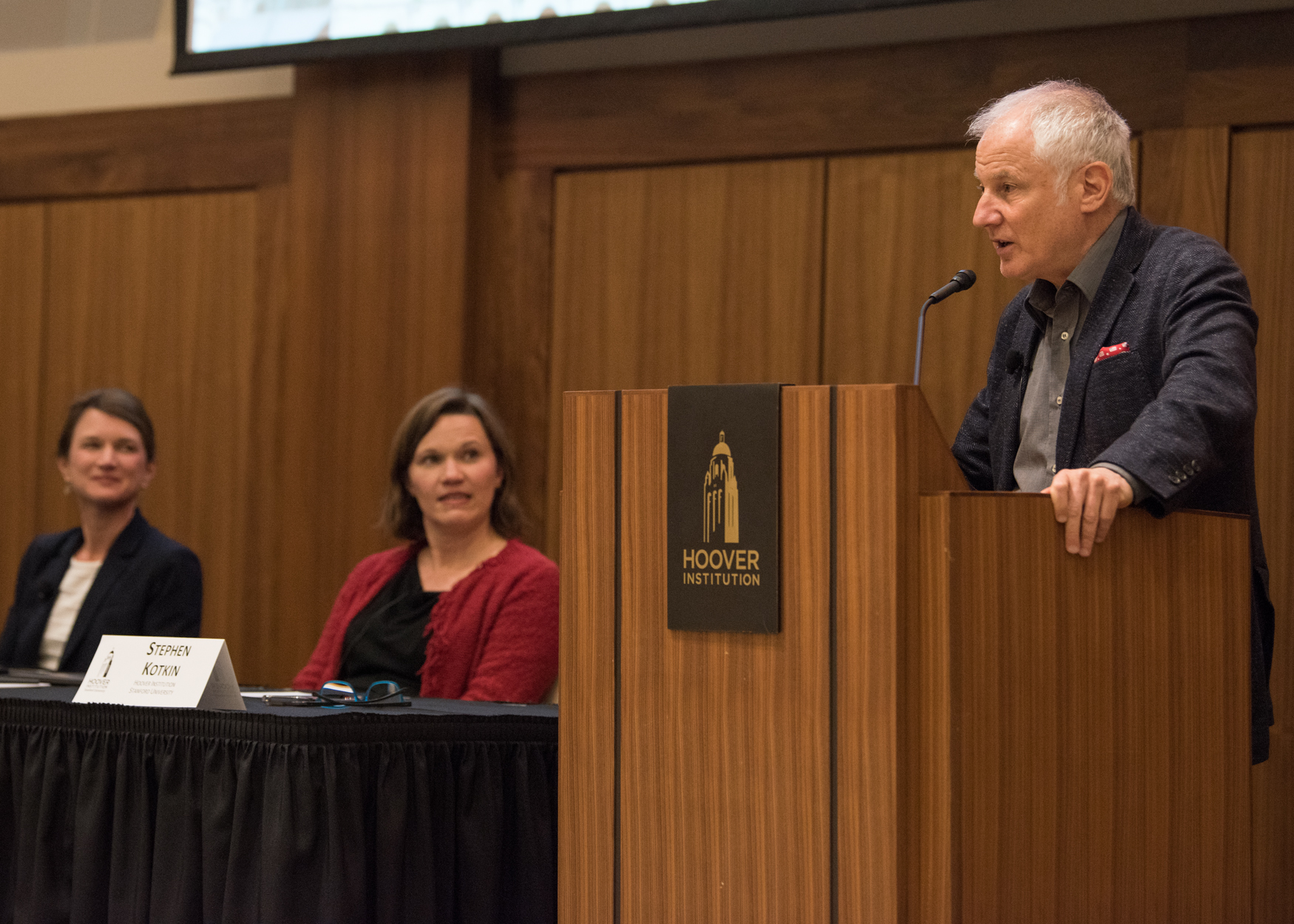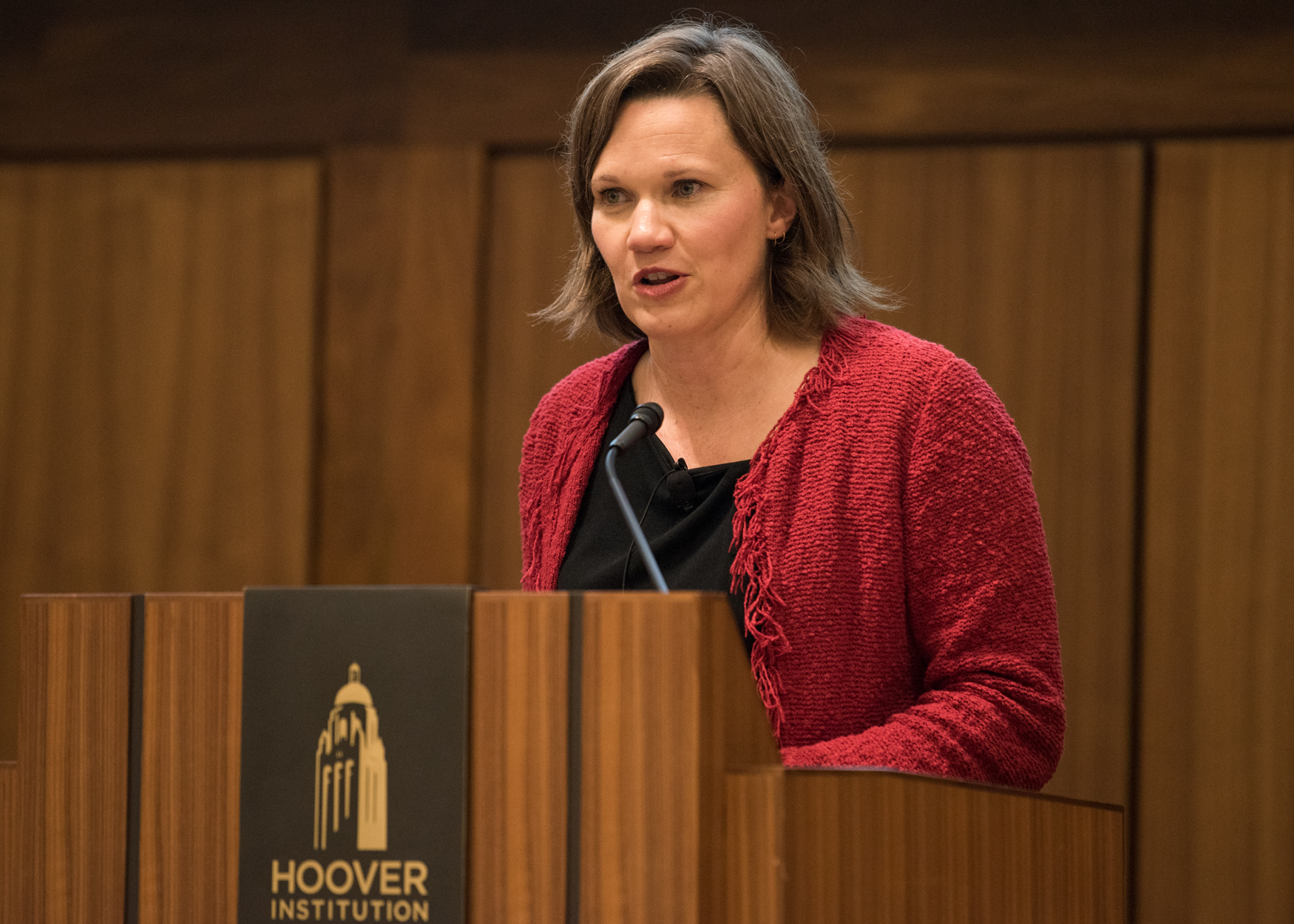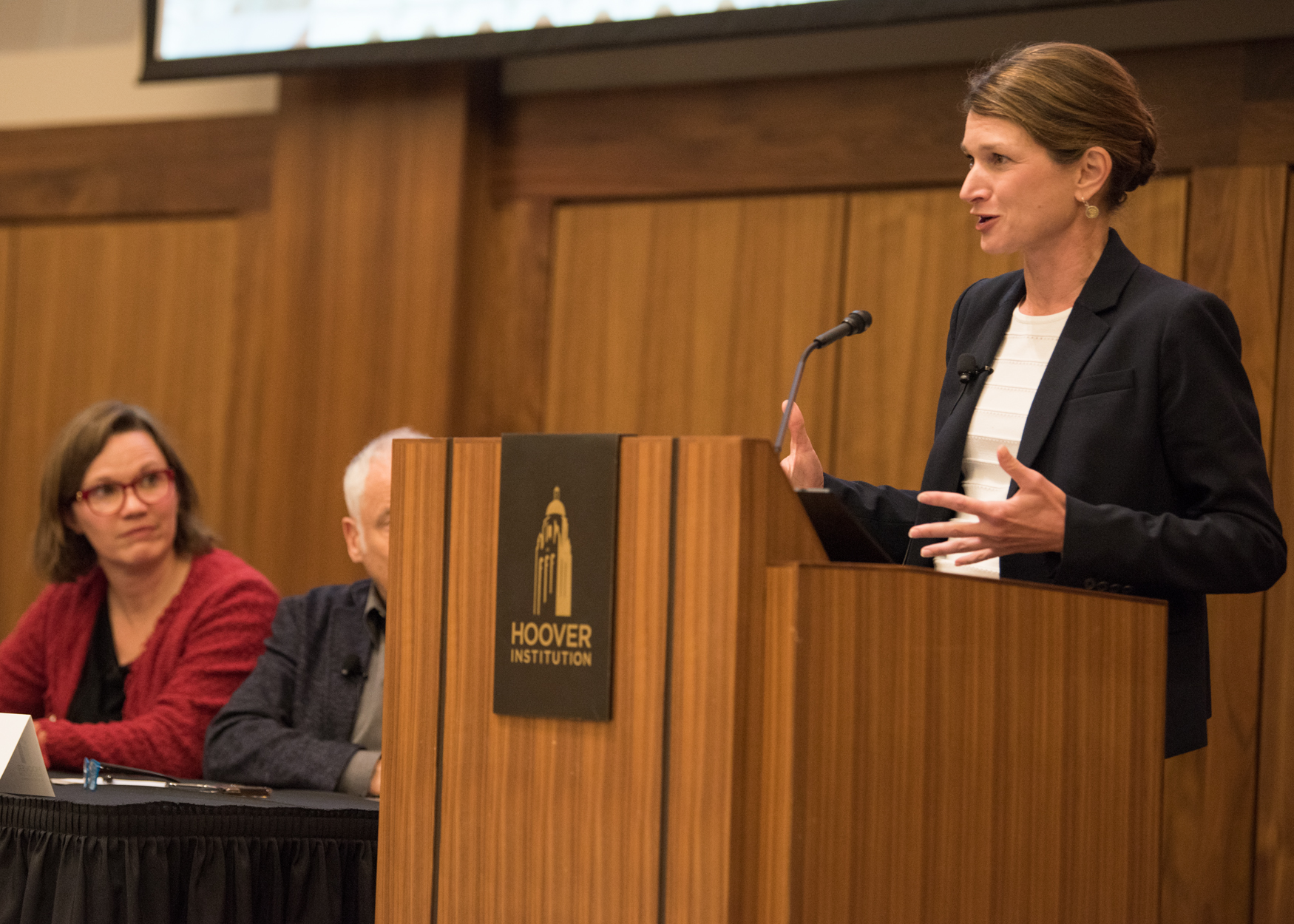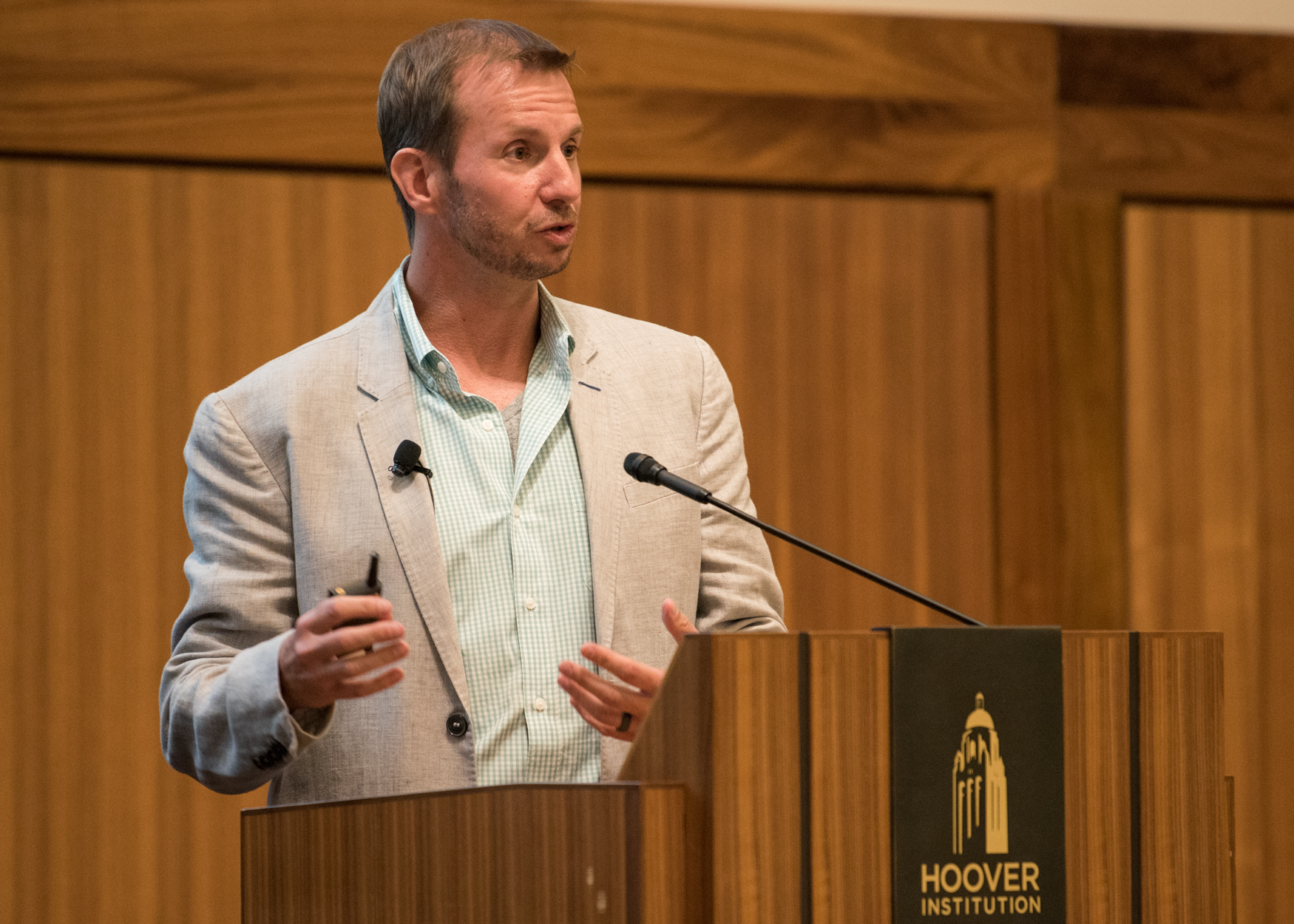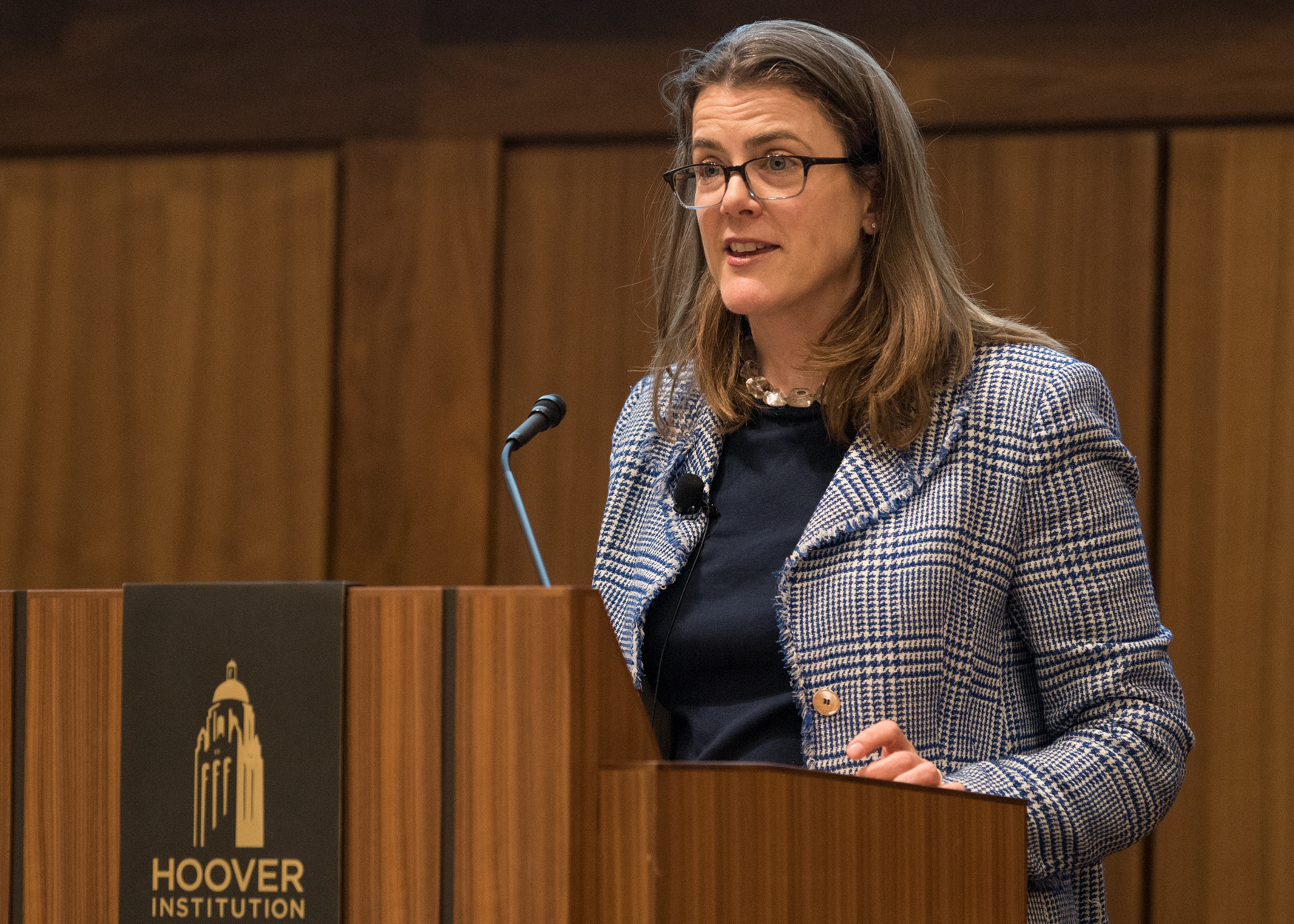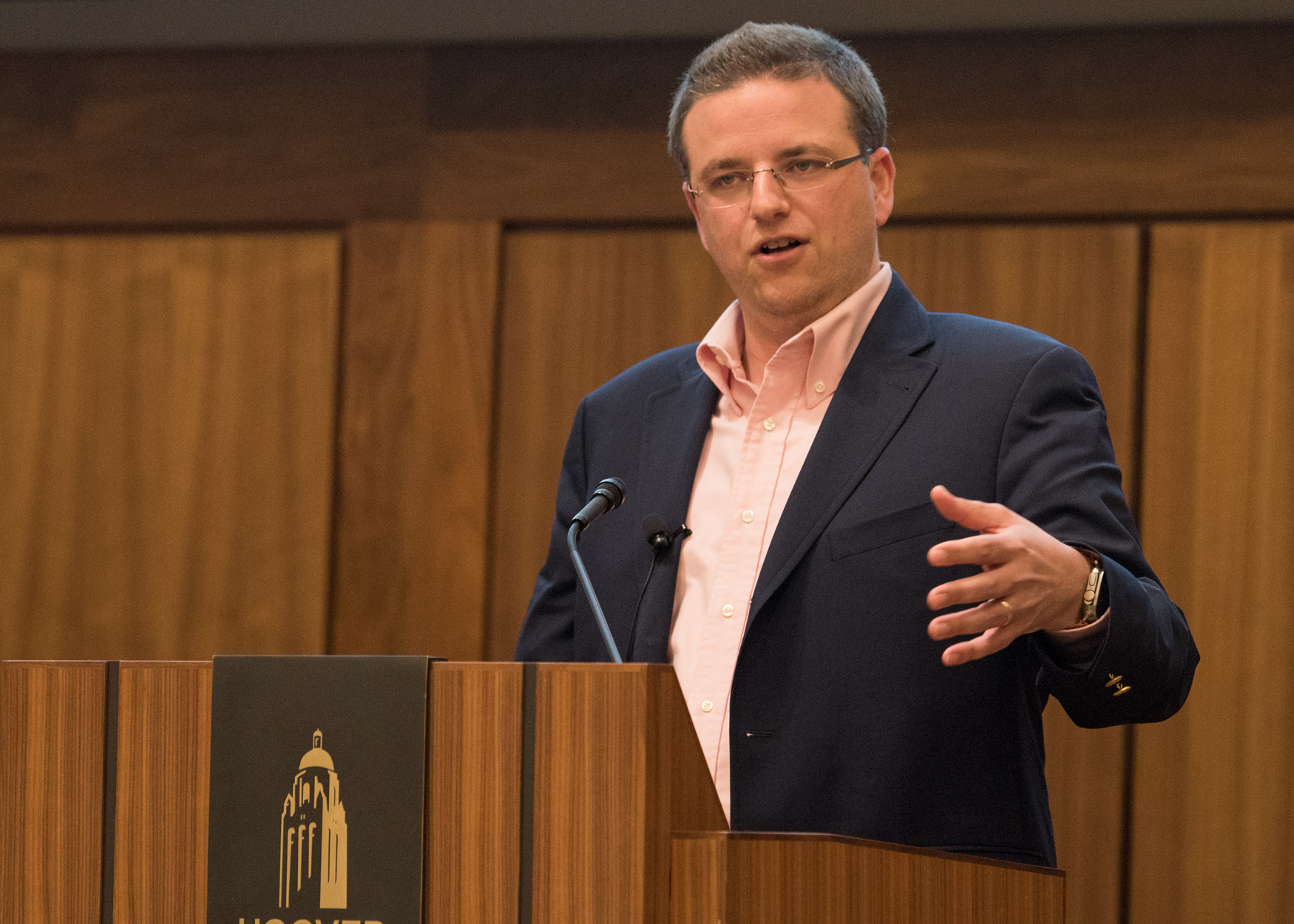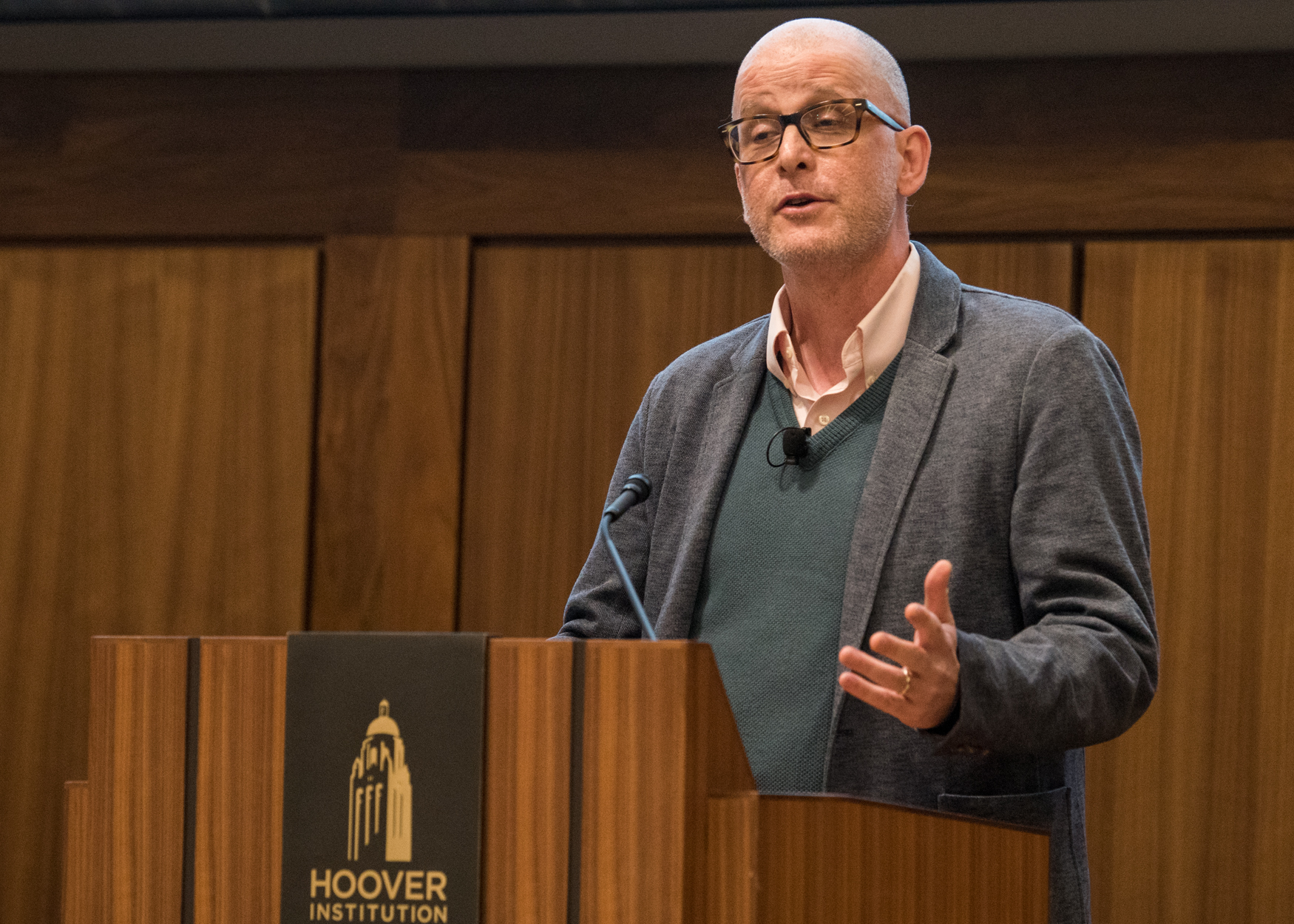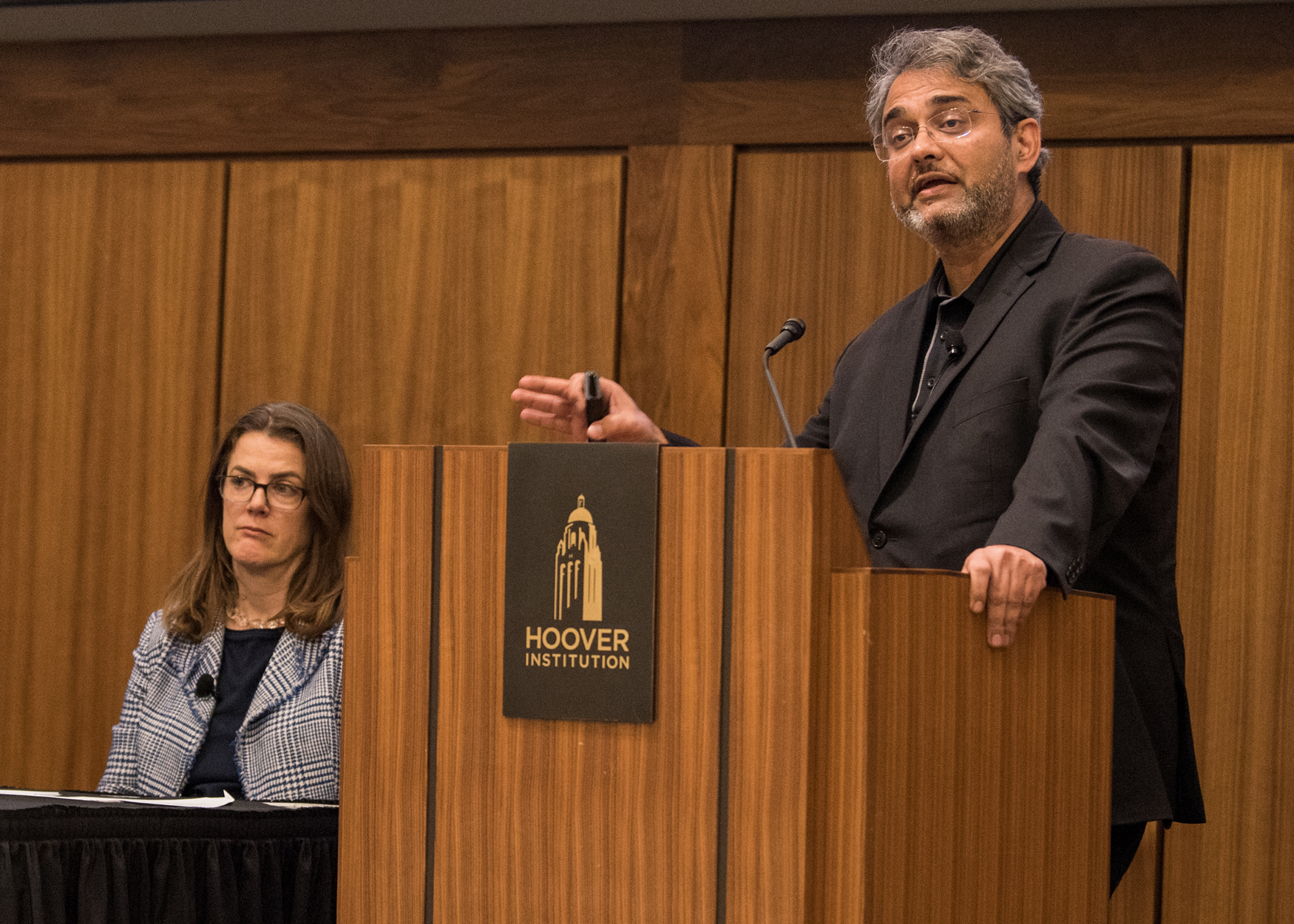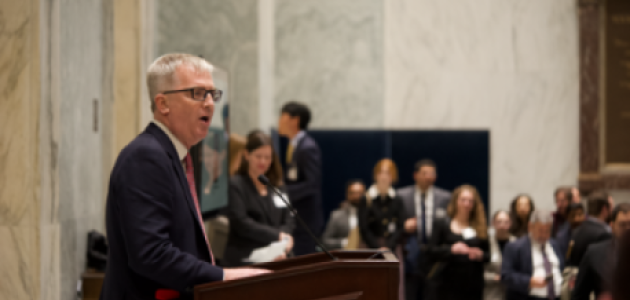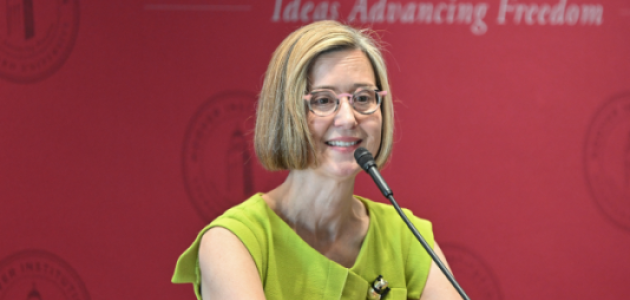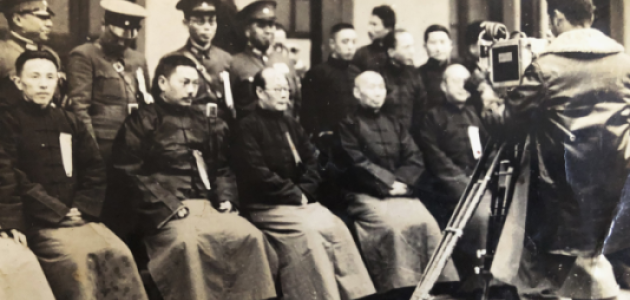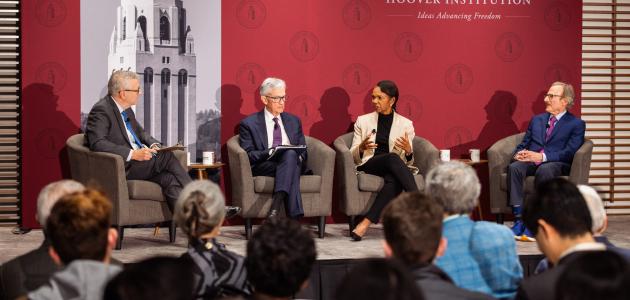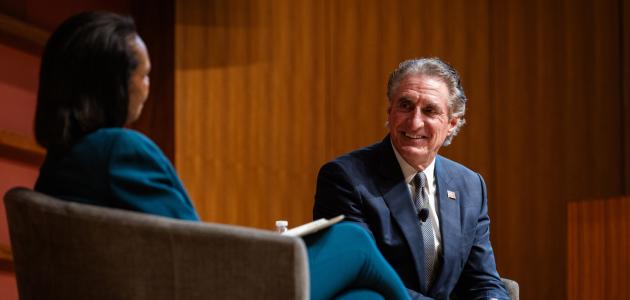Hoover Institution (Stanford, CA) – The Hoover Institution’s first center, the Center for Revitalizing American Institutions (RAI), hosted its inaugural research conference on May 4 and 5, focusing on the challenges confronting the nation’s democratic life, including lack of public confidence in the electoral process, political polarization, the persistent notion that America is on the brink of a constitutional crisis, and public debates about the extent of power assumed by executive branch agencies.
Since becoming Hoover Institution director in fall 2020, Condoleezza Rice has made the issue of restoring trust in America’s democratic institutions a core research priority for the fellowship. Public trust in government and confidence in the legitimacy of the electoral process are at astonishing lows.
For Rice, such erosion of trust is dangerous for any democracy but is especially perilous for one held together by a creed that America is a land of opportunity where all can prosper through talent and hard work. RAI will study the reasons behind the crisis in trust, analyze how our institutions are operating in practice, evaluate proposals for reform, and offer policy recommendations to rebuild trust and increase the effectiveness of institutions.
In fall 2022, Rice appointed accomplished political scientist Brandice Canes-Wrone to be the Maurice R. Greenberg Senior Fellow and RAI’s founding director. A scholar of American politics, political economy, and elections, Canes-Wrone was previously the Donald E. Stokes Professor of Public and International Affairs at Princeton University, where she also served as director of the Center for the Study of Democratic Politics and as vice dean of the School of Public and International Affairs.
The inaugural RAI event, “Challenges in American Institutions,” convened leading scholars on the US government and law, who presented—and received feedback from peers on—research papers that addressed specific institutional challenges. Conference presentations are as follows:
Paper: “A Typology of Constitutional Crises”
Presenter: Keith E. Whittington, Princeton University
Discussants: Lee Epstein, University of Southern California; Jonathan Gienapp, Stanford University
Chair: David M. Kennedy, Hoover Institution and Stanford University
Keith Whittington explains that an oddity of modern public debate in American politics is the persistent notion that the nation is on the brink of a constitutional “crisis,” even if the term is rarely, if ever, defined. Whittington then describes three ways the constitutional order might break down: 1) crisis of operation, when the government cannot resolve a political problem within the existing framework, rules, and norms spelled out in the Constitution; 2) crisis of fidelity, when features of the Constitution no longer bear attractiveness or authority in a given moment; and 3) crisis of bad faith, when political actor(s) deliberately subvert or misinterpret the Constitution for partisan advantage.
Presenter: Sharece Thrower, Vanderbilt University
Discussant: Tara Leigh Grove, University of Texas at Austin; Andrew Reeves, Washington University in St. Louis
Chair: David Brady, Hoover Institution and Stanford University
Sharece Thrower and coauthor Paul J. Gardner of Queen’s University examine the use of “signing statements” by American presidents to interpret legislation. In their analysis, signing statements increase the probability of judicial review, especially when the Supreme Court is ideologically distant from the issuing president, if the executive agency is highly controlled by the president, and if the president has weak statutory authority.
Paper: “Presidential Adjudication”
Presenter: Emily S. Bremer, University of Notre Dame
Discussant: Jonah Gelbach, University of California–Berkeley; William Howell, University of Chicago
Chair: Daniel P. Kessler, Hoover Institution and Stanford University
Emily Bremer argues that the Administrative Procedure Act’s most central reform—its regime for ensuring presiding officers in administrative hearings are impartial and competent—is on a collision course with the Supreme Court’s recent jurisprudence on the doctrine of separation of powers. In peril, she explains, is the APA’s structure of empowering and protecting administrative law judges, who perform the function of presiding over administrative hearings and issuing decisions that become final in the absence of agency head review.
Paper: “Who Are the Election Skeptics? Evidence from the 2022 Midterm Elections”
*Preliminary draft available upon request
Presenter: Justin Grimmer, Hoover Institution and Stanford University
Discussants: Benjamin Ginsberg, Hoover Institution; Seo-young Silvia Kim, American University
Chair: Stephen Haber, Hoover Institution and Stanford University
Justin Grimmer and coauthors Sean Westwood of Dartmouth College and Yphtach Lelkes of the University of Pennsylvania describe segments of the voting population who are most likely to be skeptical of the electoral process and the reasons behind their skepticism. Based on extensive survey polling around the 2022 election, Grimmer, Westwood, and Lelkes provide five facts on the state of confidence in American elections: 1) skepticism remains especially high among Republicans; 2) there is bipartisan belief that there is a nontrivial amount of fraud in mail and absentee voting; 3) there are widespread attitudes that fraud is taking place in highly competitive and Democratic-controlled states; 4) there is a “winners effect” whereby individuals who supported the party that won the election are less skeptical than those who supported the losing party; and 5) there is no significant support for fringe conspiracies about fraud.
Paper: “The Political Polarization of Corporate America”
Presenter: Elisabeth Kempf, Harvard Business School
Discussants: Matthew Gentzkow, Stanford University; Neil Malhotra, Stanford University
Chair: John F. Cogan, Hoover Institution
Elisabeth Kempf and coauthors Vyacheslav Fos of Boston College and Margarita Tsoutsoura of Washington University in St. Louis argue that executive teams in US firms are becoming increasingly partisan. The basis for this argument is findings that explain an increasing share of Republican executives and a growth in assortative matching by executives on political affiliation. The authors also find that executives in the political minority are more likely to leave their teams and that their former company’s stock price responds negatively to their departure.
Paper: “Importance and Interpretive Questions”
Presenter: Ilan Wurman, Arizona State University
Discussants: David Lewis, Vanderbilt University; Anne Joseph O’Connell, Stanford University
Chair: Michael McConnell, Hoover Institution and Stanford University
Ilan Wurman argues that the recently formulated “major questions” doctrine by the US Supreme Court—which requires explicit congressional authorization for an executive agency deciding to act on an issue of major national significance—is supported by a textualist interpretation of the US Constitution. He maintains that the doctrine is defensible, if not as substantive canon then as linguistic canon.
Paper: “Institutions, Risk, and Categories: The Political Economy of Essential Work”
*Preliminary draft available upon request
Presenter: Abby Wood, University of Southern California
Discussants: Sarah Anzia, University of California–Berkeley; Tom Clark, Emory University and Stanford University
Chair: Stephen Kotkin, Hoover Institution
Abby Wood examines how governors allocate risk when utilizing their emergency powers during crises such as COVID-19. More specifically, under what political conditions do they shift risk from private industry to essential workers? She finds that ethics constraints and checks and balances prevent governors from granting powerful industries favors. By contrast, institutional weaknesses will pull the governor in favor of industry interests that would increase the health risks of workers.
Paper: “Governing Online Platforms: The Challenge of Political Participation”
*Preliminary draft available upon request
Presenter: Andrew B. Hall, Hoover Institution and Stanford University
Discussants: B. Pablo Montagnes, Emory University; Amit Seru, Hoover Institution
Chair: Jennifer Burns, Hoover Institution and Stanford University
Andrew Hall argues that decentralized autonomous rganizations (DAOs), which have been used to govern cryptocurrency exchanges, may be a viable solution to the governance of social media platforms. As Hall explains, DAOs enable users to participate in some or all of the decisions that regulate online behaviors. To encourage user participation, DAOs offer transferable tokens, which increase users’ voting power as they accumulate.
For more information on Hoover’s Center for Revitalizing American Institutions, click here.







